

The longest shutdown in U.S. history will soon be over, at least for three weeks. President Donald Trump and Congress worked out a deal after 35 days to reopen closed government agencies and pay back federal employees who have been going to work without pay. The deal, however, does not include funding for a border wall.
Trump’s fractured relationship with Congress, which further deteriorated after Democrats won control of the House of Representatives in the midterm elections, is not unique. Many presidents have faced opposition, sometimes even fierce, from elected congressmen and congresswomen for varying reasons, from party loyalty to personal differences.
When the executive and legislative branches of the government do not get along, stalemate is often the result. Bills are not be passed into laws, government agencies can run out of money, and important jobs can remain vacant.
As the government tries to resume normal operations, 24/7 Wall St. takes a look at the presidents with the best and worst relationships with Congress.
The following list is based on C-SPAN’s 2017 presidential historians survey. Presidents are ranked by historians and other professional observers of the presidency based on 10 qualities of leadership, with 100 being the best and 0 the worst. One of those qualities is relations with Congress. Survey rankings were arranged by averaging all responses in each of the 10 categories for each of the 43 presidents. (Grover Cleveland served two non-consecutive terms; William Henry Harrison is not included because he was in office for just 32 days; and Trump is not included because at the time of the survey he was in office for just a few weeks.) Information about the presidents’ time in the White House was taken from government sources such as WhiteHouse.gov or history-based sites such as History.com.
Click here to see the presidents with the best and worst relationship with Congress.

Andrew Johnson
> Years served: 1865 – 1869
> Relationship with Congress score: 17.1 (the lowest)
> Crisis leadership score: 25.3 (2nd lowest)
> Party affiliation: Democrat
President Andrew Johnson and Congress did not get along right from the start of his presidency following President Abraham Lincoln’s assassination. Congressmen did not like Johnson’s Reconstruction plan. They overrode his veto on laws concerning former slaves — the first time this had happened in American political history — and passed the Civil Rights Act of 1866, which established former slaves as citizens and banned discrimination against them. Congress impeached Johnson in 1868 for violating the Tenure of Office Act after he sacked the secretary of war, who also opposed the president’s Reconstruction plans. He was acquitted.
[in-text-ad]

James Buchanan
> Years served: 1857-1861
> Relationship with Congress score: 28.4 (2nd lowest)
> Crisis leadership score: 17.4 (the lowest)
> Party affiliation: Democrat
Seven Southern states seceded from the Union during President James Buchanan’s time in office. His relationship with Congress began deteriorating when he expressed support for Kansas joining the Union as a slave state. (Kansas remained a separate territory until 1861.) In 1858, one year into Buchanan’s term, Republicans regained control of Congress, blocking many of his proposals, and he, in return, vetoing their bills.
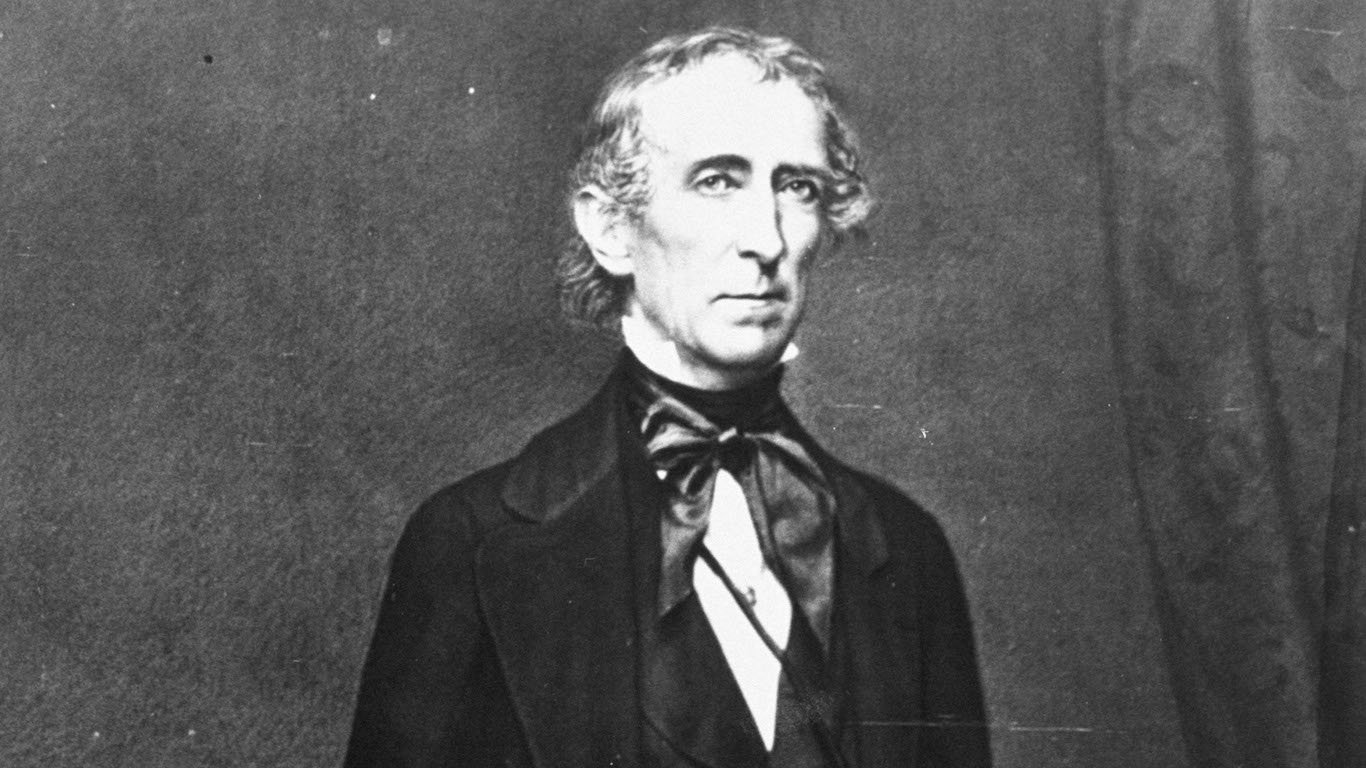
John Tyler
> Years served: 1841-1845
> Relationship with Congress score: 31.0 (3rd lowest)
> Crisis leadership score: 40.1 (8th lowest)
> Party affiliation: Independent
The 10th president of the United States was the first to assume office after his predecessor died. Though he ran for vice president on the Whig ticket, as president he clashed with the Whig Party, which was formed in reaction to what were deemed as authoritarian policies of President Andrew Jackson, including his decision not to remove federal funds from the national bank. After Tyler vetoed bills aiming to create a new national bank, the Whigs started an impeachment process, the first time it was initiated, but the resolution failed.

Franklin Pierce
> Years served: 1853-1857
> Relationship with Congress score: 36.6 (4th lowest)
> Crisis leadership score: 26.9 (3rd lowest)
> Party affiliation: Democrat
President Franklin Pierce supported the Kansas-Nebraska Act. The controversial act repealed the ban on slavery in Kansas, established Kansas and Nebraska as territories, and gave the right for white inhabitants, not Congress, to decide whether they should allow slavery. Opposition in Congress against the act was fierce and led to the formation of the Republican Party. Violence in Kansas between pro- and anti-slavery supporter broke out, a period often referred to as “Bleeding Kansas.”
[in-text-ad-2]

Barack Obama
> Years served: 2009-2017
> Relationship with Congress score: 37.8 (5th lowest)
> Crisis leadership score: 65.4 (15th highest)
> Party affiliation: Democrat
While President Barack Obama’s relationship with Congress started well with the passing of the Affordable Care Act and the Dodd-Frank financial reform law, it degraded as Republicans gained control in the midterm elections. At the end of his presidency, Senate Republicans even refused to consider Obama’s Supreme Court nominee. Conservatives say he passed too many executive orders because his proposed rules and regulations failed to get Congress approval. Obama issued a total of 277 executive orders, or an average of 35 a year, the fewest since President Grover Cleveland.
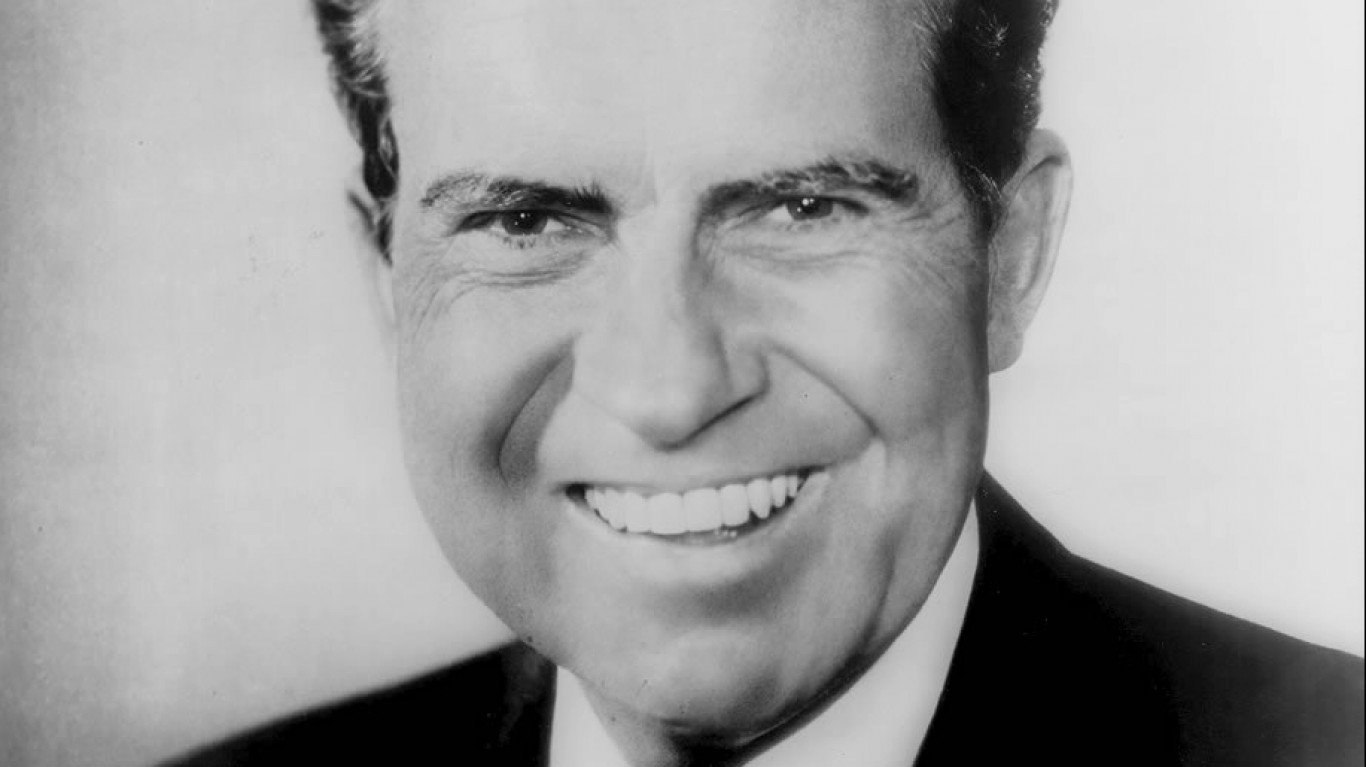
Richard M. Nixon
> Years served: 1969-1974
> Relationship with Congress score: 42.8 (7th lowest)
> Crisis leadership score: 49.1 (17th lowest)
> Party affiliation: Republican
Richard Nixon is the only president to have resigned from office. Had he not resigned, he would have likely faced impeachment by Congress and found guilty of trying to cover up illegal activities related to the Watergate scandal. Up until Watergate, however, Nixon managed to work with Congress on several fronts, including more thorough desegregation of Southern schools and environmental initiatives such as creating the Environmental Protection Agency. After Nixon resigned, he was pardoned by Vice President Gerald Ford, who succeeded him.
[in-text-ad]
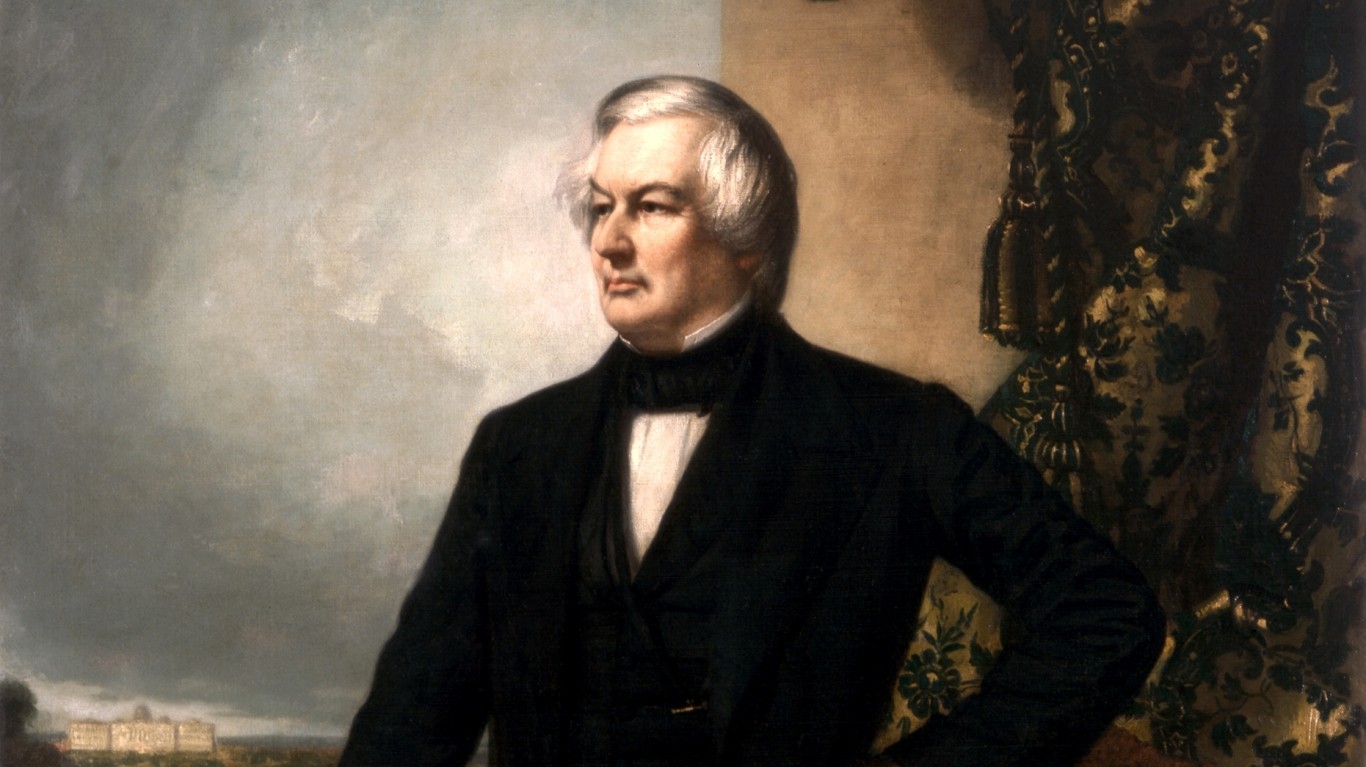
Millard Fillmore
> Years served: 1850-1853
> Relationship with Congress score: 43.1 (8th lowest)
> Crisis leadership score: 42.4 (10th lowest)
> Party affiliation: Whig Party
Millard Fillmore’s rocky relationship with Congress started when he was the vice president under Zachary Taylor. Fillmore presided over the debate over the controversial Compromise of 1850, which aimed to keep the balance between free and slave states in the Union after California requested to join as a free state. After Taylor suddenly died of what is believed to be food poisoning in 1850, Fillmore became president. He supported the Compromise and enforced the controversial Fugitive Slave Act, authorizing local governments to return escaped slaves to their owners, which kept him at odds with Congress.
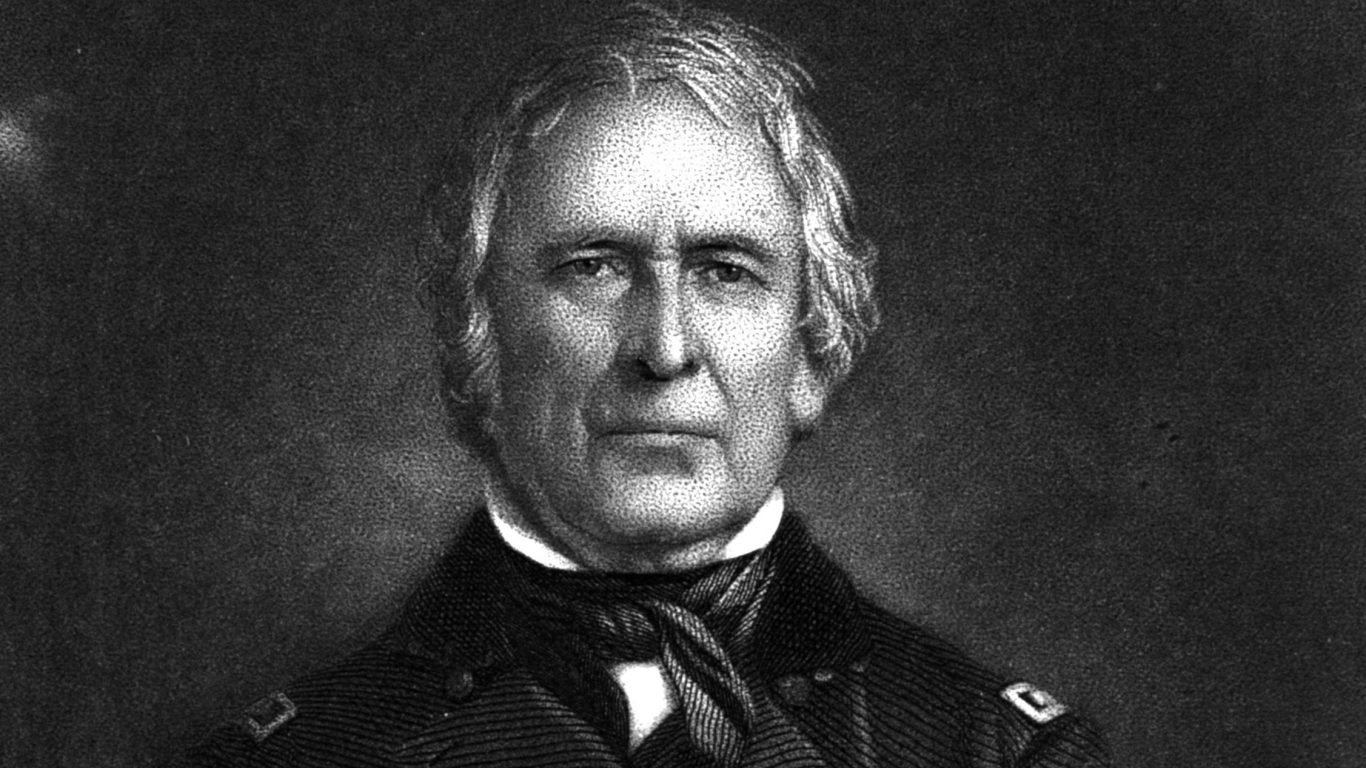
Zachary Taylor
> Years served: 1849 – 1850
> Relationship with Congress score: 43.3 (9th lowest)
> Crisis leadership score: 47.6 (16th lowest)
> Party affiliation: Whig Party
Zachary Taylor’s conflict with Congress was over legislative power. Taylor wanted California and New Mexico to skip the territorial phase, write their own constitutions, and join the Union right away. At the time, gold had just been discovered in California, and its population was booming. To admit California and New Mexico into the Union, likely as free states, Southern congressmen proposed to a compromise, which Taylor opposed. What became known as the Compromise of 1850 was supported by Congress.

Warren G. Harding
> Years served: 1921-1923
> Relationship with Congress score: 43.8 (10th lowest)
> Crisis leadership score: 32.1 (5th lowest)
> Party affiliation: Republican
Harding was the first senator to be elected president. He was known as pro-business and for his “less government in business and more business in government” approach. He worked well with Republicans in Congress, signing bills such as lowering taxes, especially for the rich, and raising protective tariffs. Rumors began circulating, toward the end of his presidency, of corruption among members of his cabinet, turning members of Congress and other politicians against him. These allegations, which proved to be true after his death from a heart attack in 1923, marred Harding’s presidency.
[in-text-ad-2]
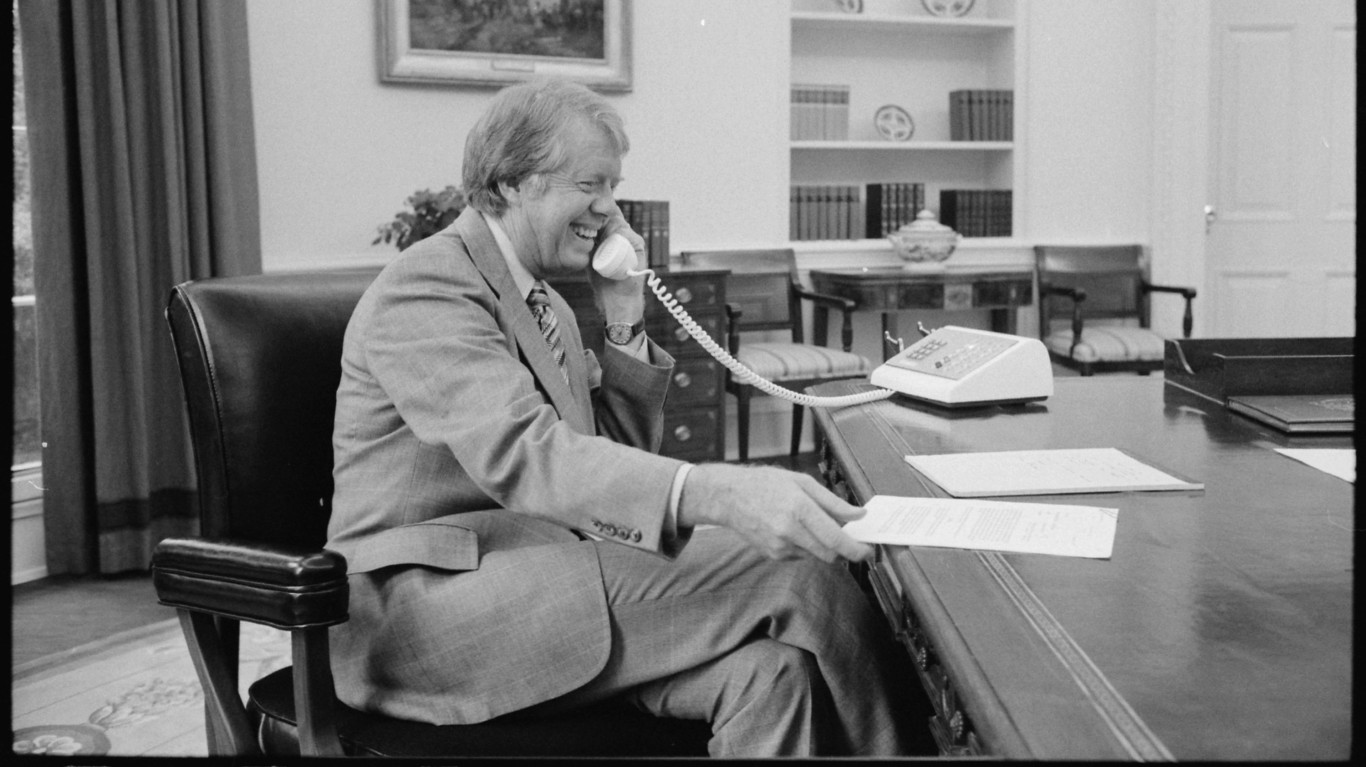
James Carter
> Years served: 1977 – 1981
> Relationship with Congress score: 44.2 (11th lowest)
> Crisis leadership score: 40.0 (7th lowest)
> Party affiliation: Democrat
President Jimmy Carter served at a difficult time, as the country struggled with an energy crisis, elevated unemployment, high inflation and interest rates, and a short recession. His ratings were low and he could not get Congress on board with his plans for change. Even though it was controlled by Democrats, Congress blocked Carter’s welfare reform and long-term energy program.

John Quincy Adams
> Years served: 1825-1829
> Relationship with Congress score: 44.3 (12th lowest)
> Crisis leadership score: 54.1 (21st lowest)
> Party affiliation: Multiple parties
President John Q. Adams accomplished only a few significant reforms while in office because of strong opposition from Congress, especially Jacksonians, who supported reducing restrictions on voting. Adams proposed establishing a national university and giving territory to Native Americans in the West. Congress argued that Adams’ policies exceeded his federal power and did not support them. During the election campaign for a second term, his challenger accused him of corruption, and Adams did not win reelection.
[in-text-ad]
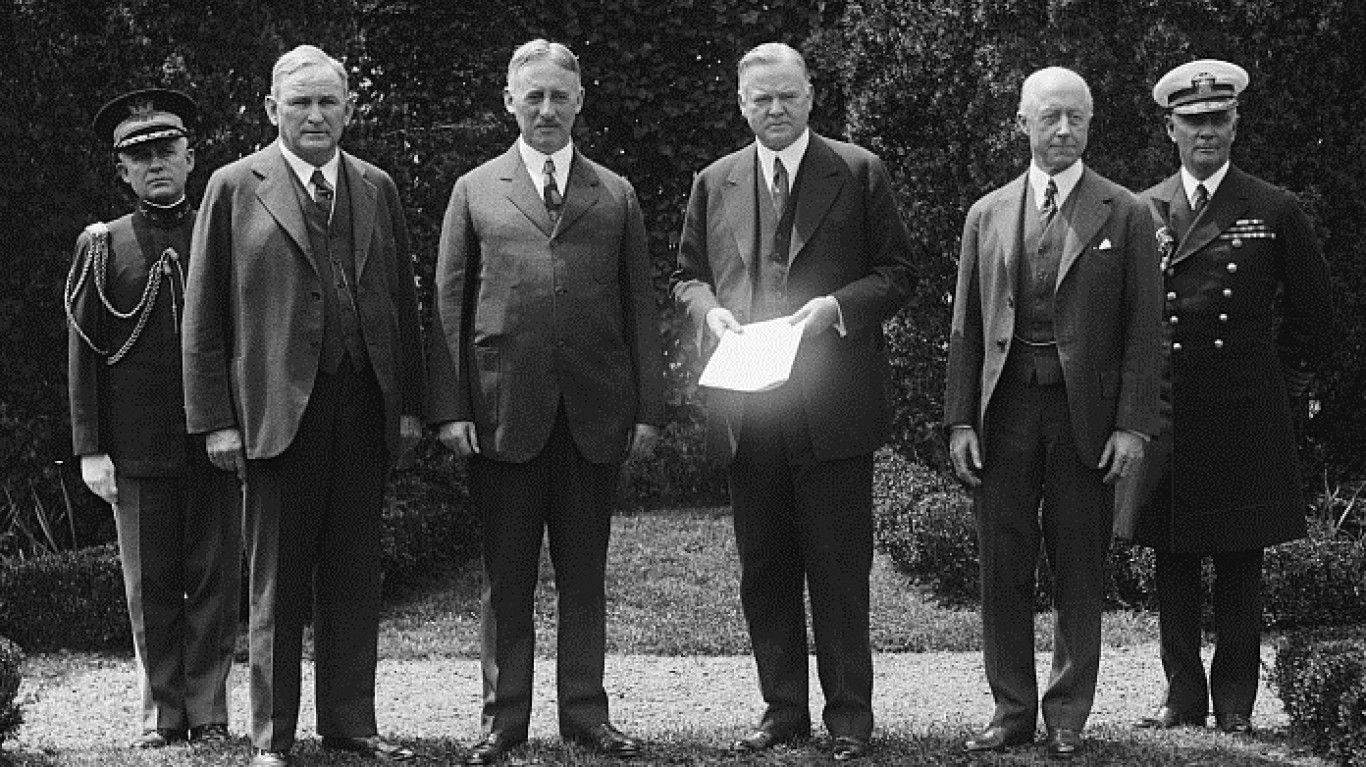
Herbert Hoover
> Years served: 1929 – 1933
> Relationship with Congress score: 44.9 (13th lowest)
> Crisis leadership score: 29.7 (4th lowest)
> Party affiliation: Republican
Herbert Hoover was president during the 1929 stock market crash and the ensuing Great Depression. He was blamed for most of the problems, especially as the crisis deepened and he vetoed several bills passed by Congress that would have provided direct help to Americans. He believed that the government should not be very involved in the economy, as it could be a threat to capitalism. He initiated some emergency measures to prevent the collapse of the agricultural industry.
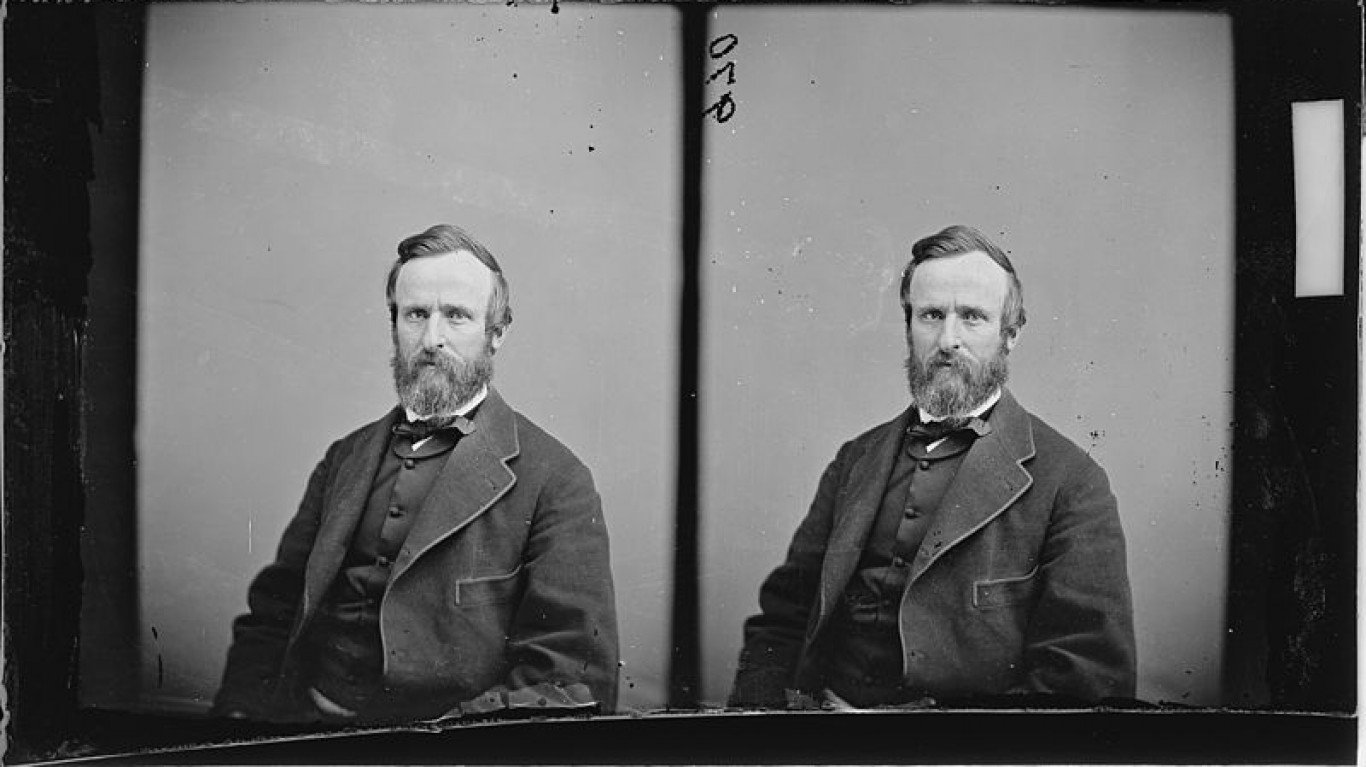
Rutherford B. Hayes
> Years served: 1877-1881
> Relationship with Congress score: 45.8 (14th lowest)
> Crisis leadership score: 45.7 (14th lowest)
> Party affiliation: Republican
President Rutherford B. Hayes oversaw the end of Reconstruction. Republicans were not happy that he appointed Southerners to federal positions and authorized money to be spend to make improvements in the South. They also did not like that Hayes tried to reform the civil service by ending political patronage. He vetoed the Bland-Allison Act, which required the Treasury to purchase silver and to put it in circulation as silver dollars, but Congress overrode it.
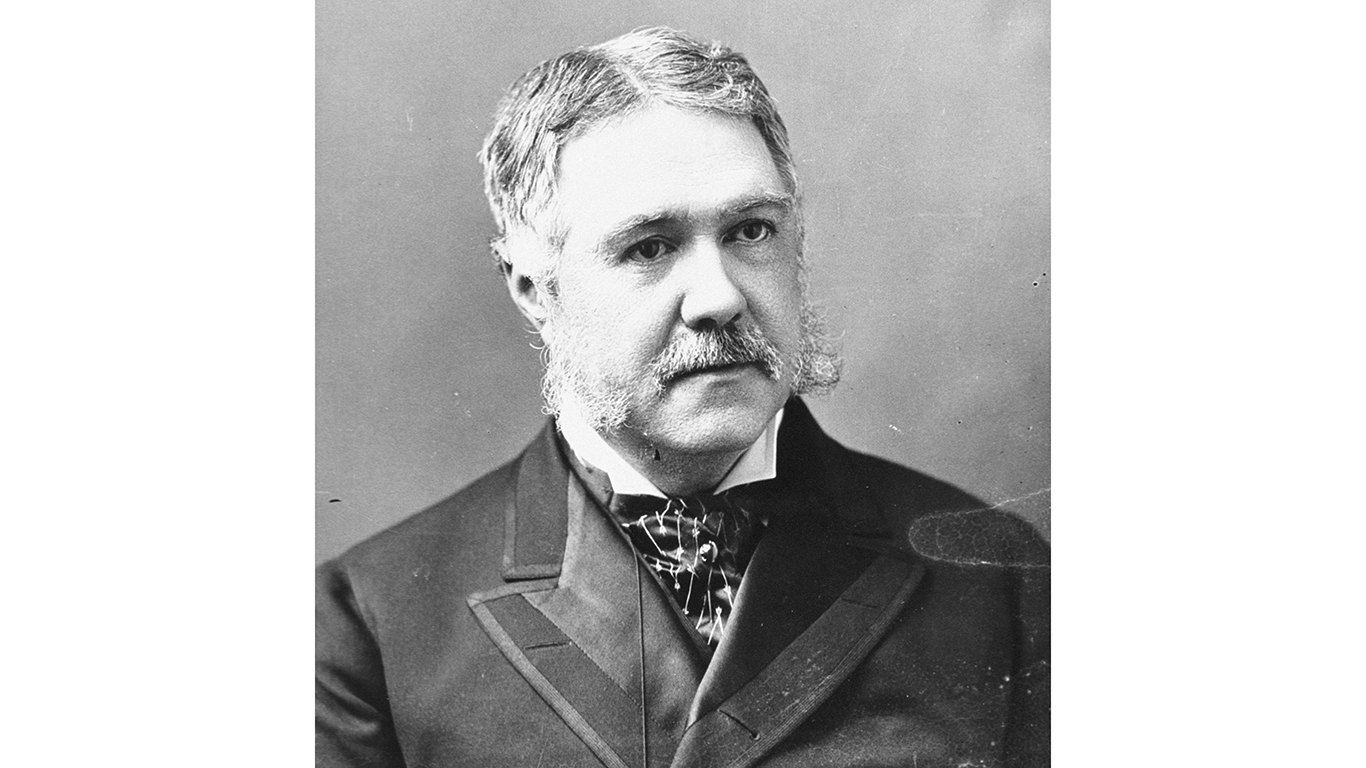
Chester A. Arthur
> Years served: 1881-1885
> Relationship with Congress score: 45.9 (15th lowest)
> Crisis leadership score: 42.8 (12th lowest)
> Party affiliation: Republican
President Chester A. Arthur was known for moving past partisanship after he was elected. He is mostly remembered for signing the Pendleton Civil Service Act, which made federal government jobs obtainable through an exam, protected people from being fired for political reasons, and established a bipartisan Civil Service Commission to enforce the law. Republicans saw his support for this law as a betrayal. Congress and Arthur could not agree on lowering tariffs. He vetoed the Chinese Exclusion Act of 1882, which meant to ban immigration of Chinese workers for a decade, but Congress overrode his veto.
[in-text-ad-2]
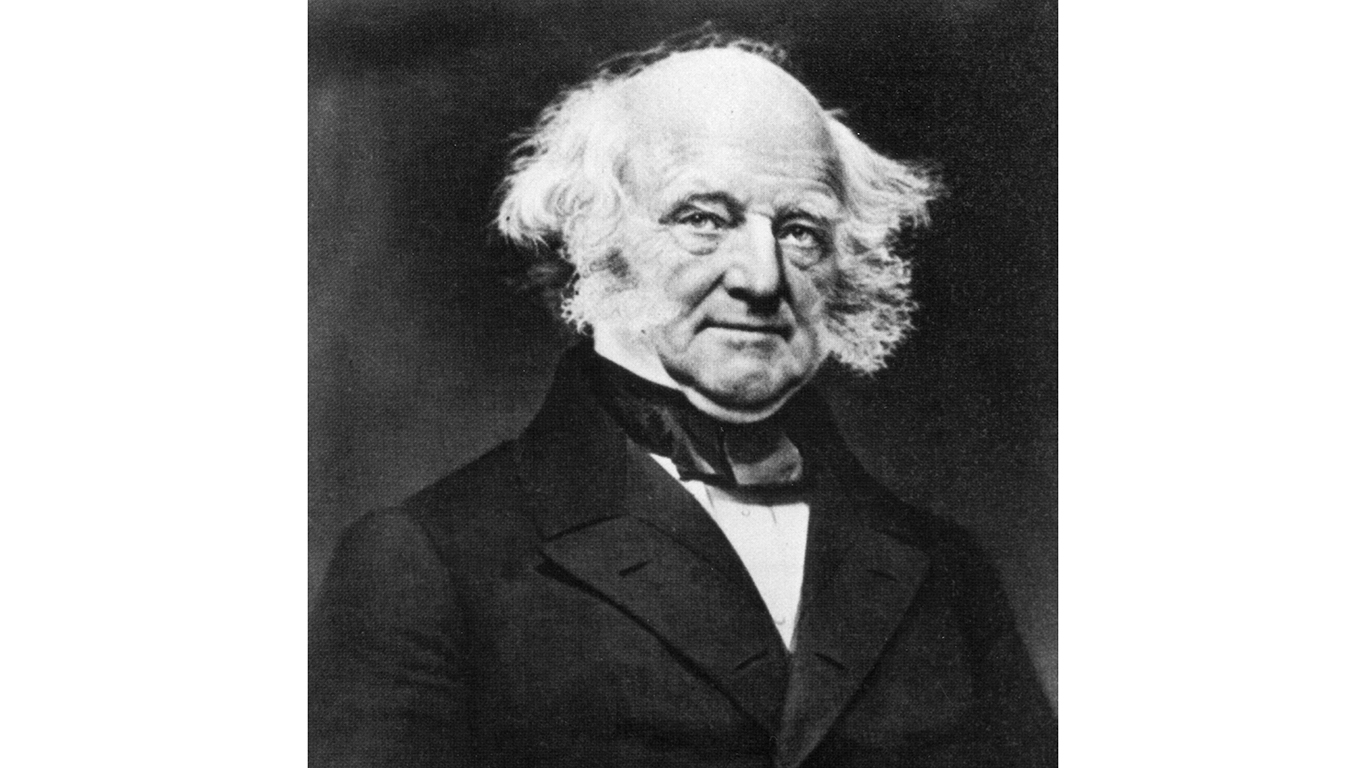
Martin Van Buren
> Years served: 1837-1841
> Relationship with Congress score: 47.9 (16th lowest)
> Crisis leadership score: 41.1 (9th lowest)
> Party affiliation: Democratic-Republican
Martin Van Buren was president during the financial panic of 1837. His debate with Congress over his proposal for the creation of an independent treasury, which passed, was so bitter it drove some Democrats into the Whig Party.Van Buren also supported cutting off all federal government expenses in order to keep the government running.
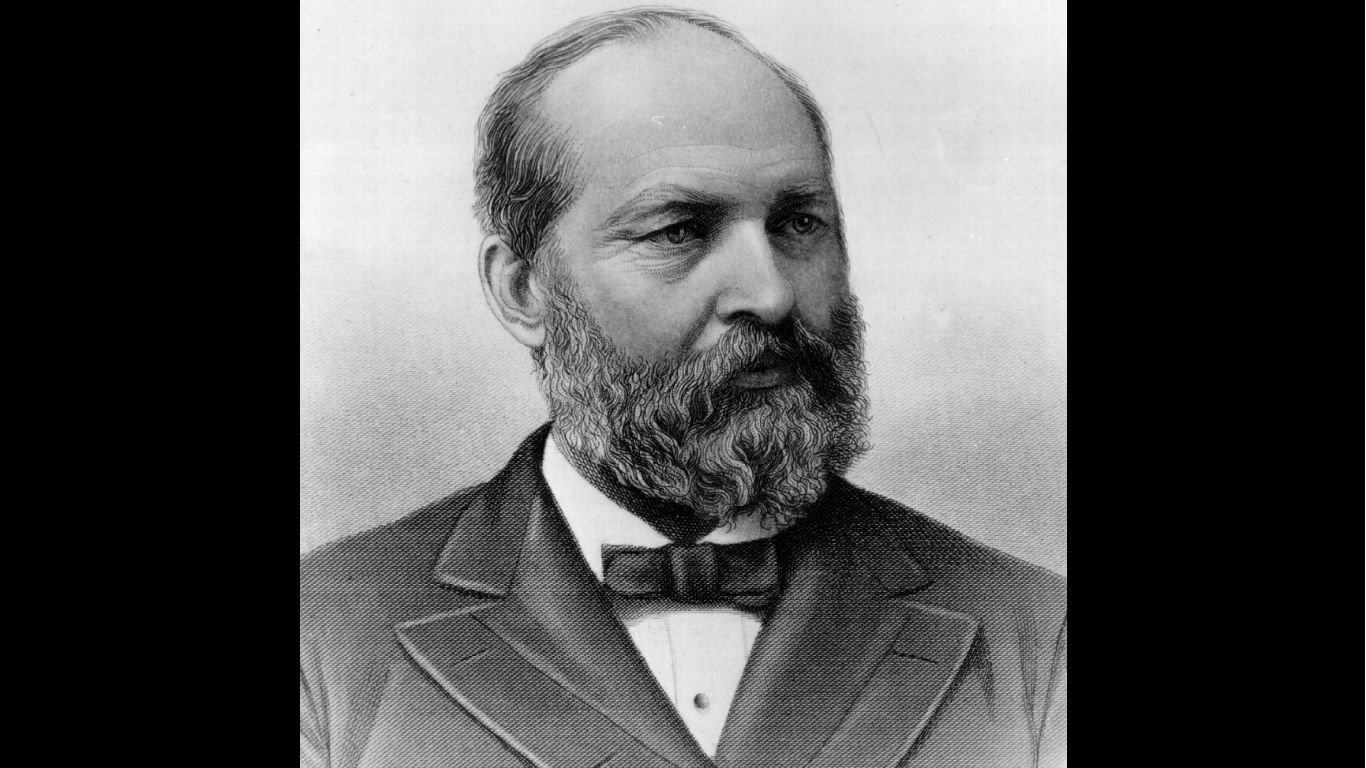
James Garfield
> Years served: 200 days in 1881
> Relationship with Congress score: 48.6 (17th lowest)
> Crisis leadership score: 44.1 (13th lowest)
> Party affiliation: Republican
President James Garfield was shot and killed just a few months into his presidency, making his the second shortest presidency in history. Most of his time as president was devoted to establishing his cabinet and making appointments that needed Senate approval. He wanted and tried to keep all parties and factions happy, but it did not quite turn out that way. Some thought he was favoring one group over another and tried to block his nominations, but unsuccessfully.
[in-text-ad]
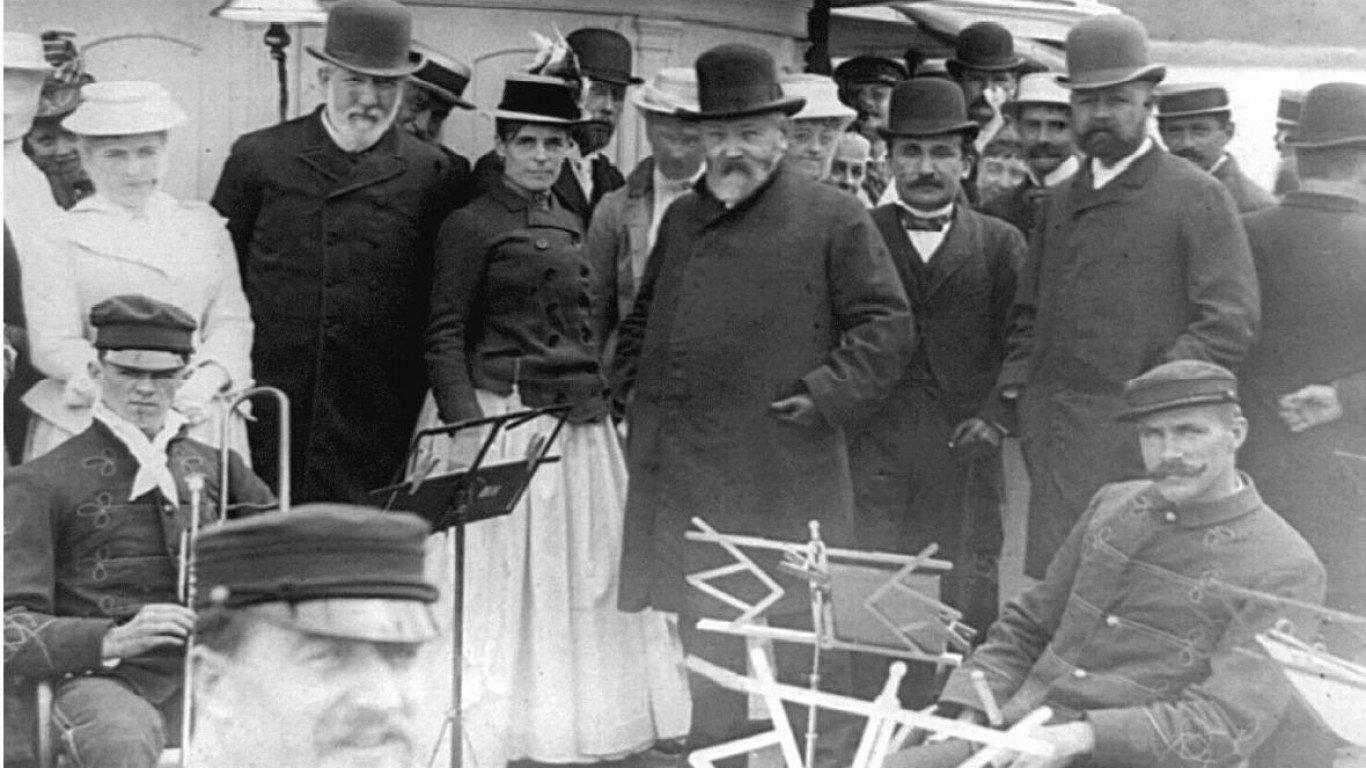
Benjamin Harrison
> Years served: 1889 – 1893
> Relationship with Congress score: 50.5 (18th lowest)
> Crisis leadership score: 42.5 (11th lowest)
> Party affiliation: Republican
The most controversial aspect of Benjamin Harrison’s presidency was his support of protective tariffs. They were seen as the reason for the country’s economic troubles that soon followed. Congressmen who opposed high tariffs said they hurt business. A bill with even higher tariffs was passed, but reciprocity provisions were added on Harrison’s insistence as a compromise. By the end of his presidency, the Treasury’s surplus was gone. As prosperity looking like disappearing as well, midterm elections went against the Republicans, who no longer cooperated with Harrison.

George W. Bush
> Years served: 2001-2009
> Relationship with Congress score: 51.9 (19th lowest)
> Crisis leadership score: 52.3 (19th lowest)
> Party affiliation: Republican
George W. Bush’s presidency was shaped by the 9/11 terrorist attacks a few months into his term. He established the Department of Homeland Security and authorized invasions of Afghanistan and Iraq. What Democrats and Bush disagreed on was his $1.6 trillion tax-cut bill, but Bush enjoyed a Republican majority in both houses, the first since the 1950s, and a version of the bill passed. Shortly after that, however, a Republican senator became independent, giving Democrats control of the Senate. That made the president’s domestic proposals harder to pass.
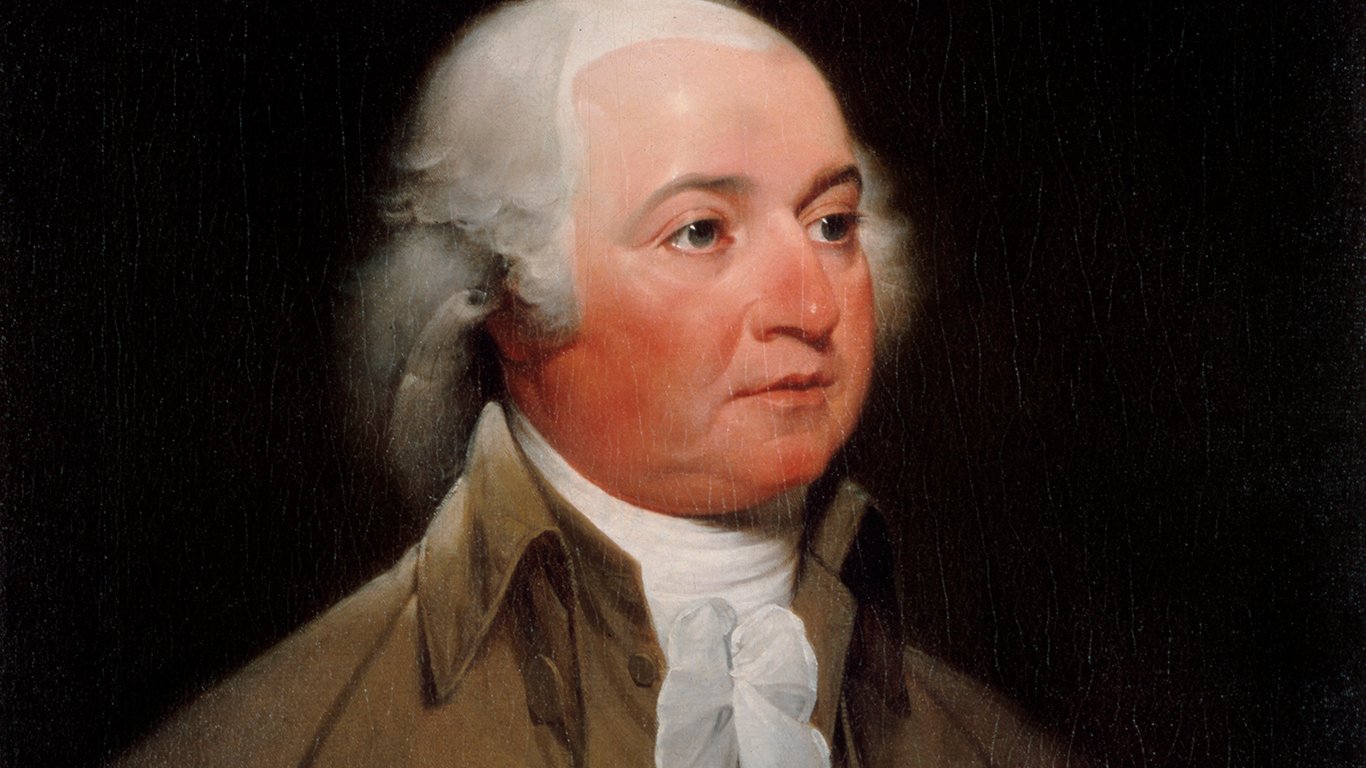
John Adams
> Years served: 1797-1801
> Relationship with Congress score: 52.0 (20th lowest)
> Crisis leadership score: 62.8 (17th highest)
> Party affiliation: Federalist
The second president of the United States was better known as a political philosopher. His presidency was preoccupied with foreign affairs as Britain and France were at war. Domestically, he lost his popularity after signing the Alien and Sedition Acts, which allowed for anyone who disagreed with the government to be arrested. Opponents, who called themselves Democratic-Republicans, among whom was Thomas Jefferson, called these laws unconstitutional.
[in-text-ad-2]
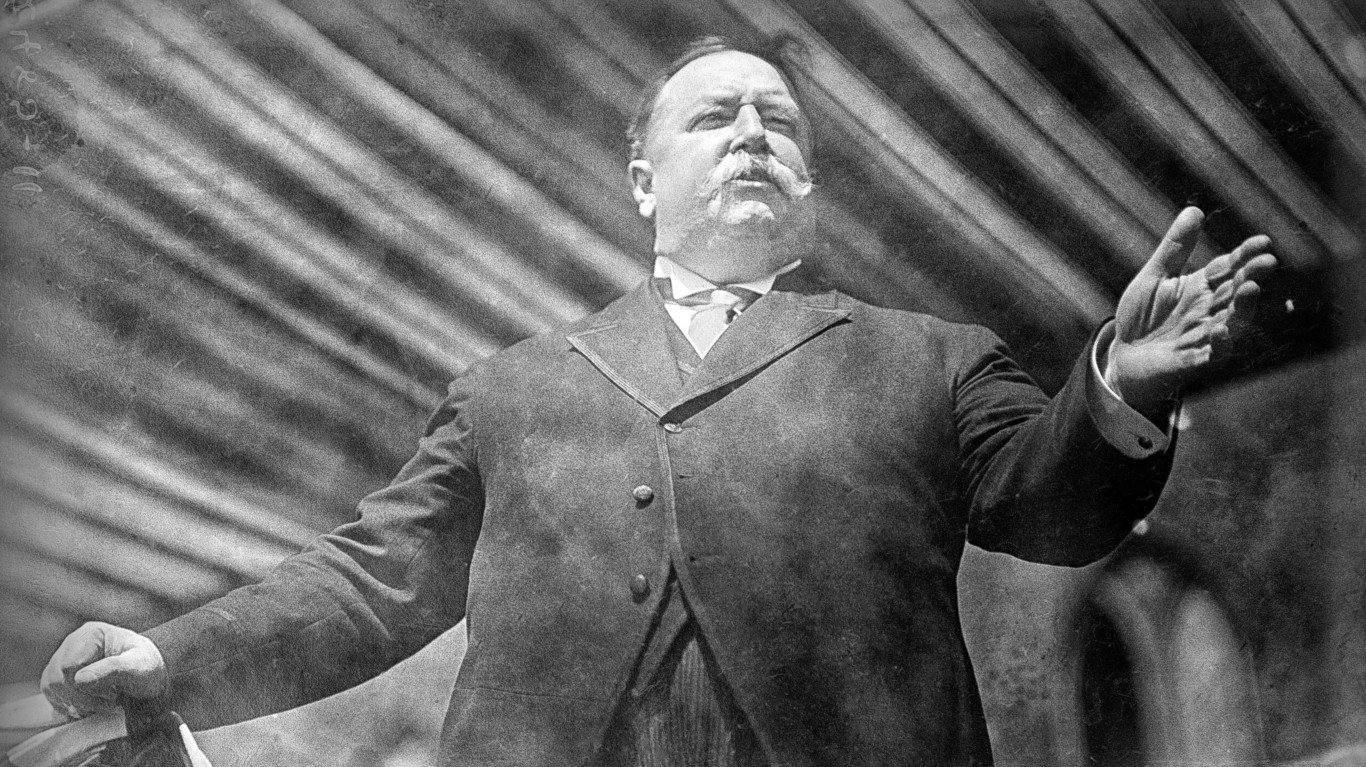
William Howard Taft
> Years served: 1909-1913
> Relationship with Congress score: 52.3 (21st lowest)
> Crisis leadership score: 49.9 (18th lowest)
> Party affiliation: Republican
President William Howard Taft and Congress passed several significant laws. However, the executive and the legislative branch disagreed on who should submit a budget to Congress. Taft advocated for the president’s office instead of different government agencies. Congress banned that action. Taft and Congress also did not see eye to eye when it came to tariffs. The president called for a special congressional session, after which, the Payne-Aldrich Act was signed. The act, however, did little to lower tariffs, which the president wanted. Disappointed Republicans broke out to form the Progressive Party.
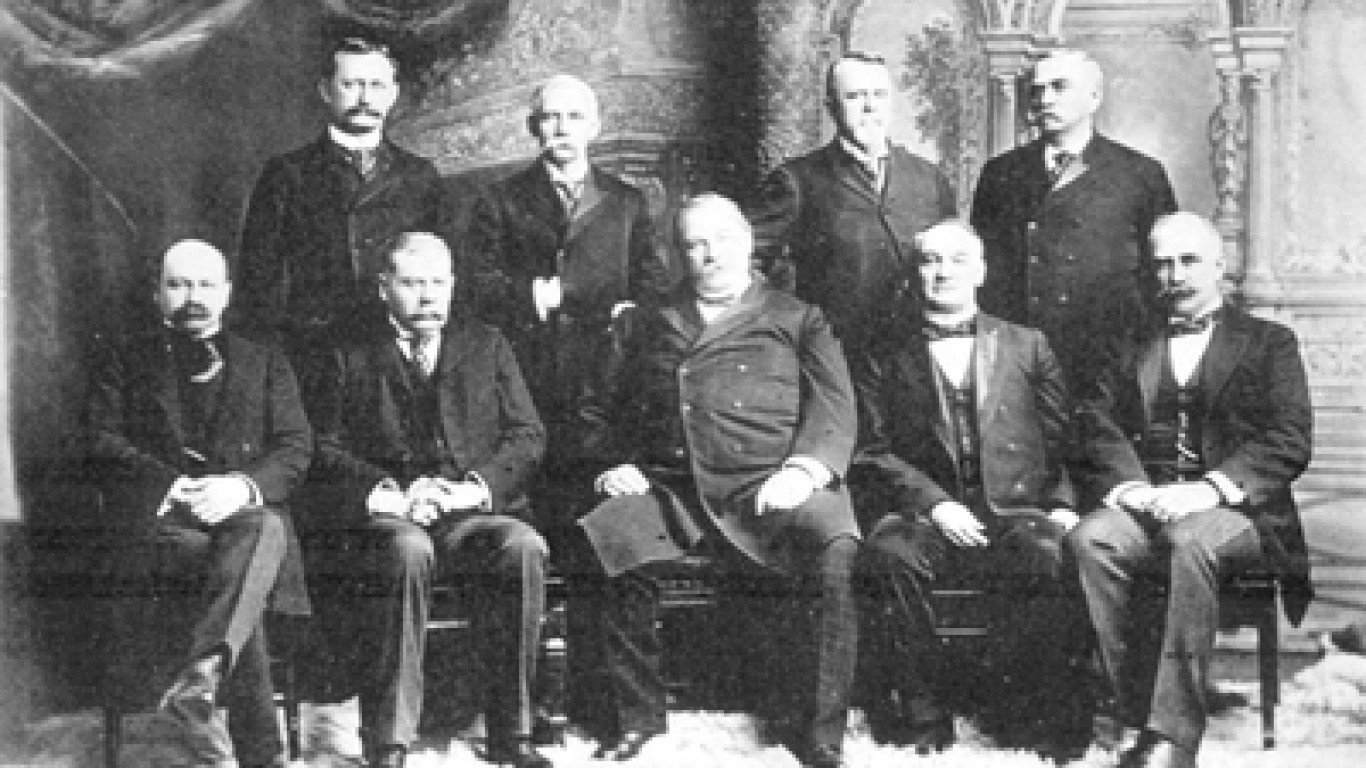
Grover Cleveland
> Years served: 1885-1889 and 1893-1897
> Relationship with Congress score: 53.6 (22nd lowest)
> Crisis leadership score: 54.7 (22nd lowest)
> Party affiliation: Democrat
Grover Cleveland, the only president to serve two non-consecutive terms, was considered to be more concerned with stopping Congress from giving privileges to friends than implementing his own legislative plans. He vetoed private pension bills, including one that would have given pensions for disability not caused by military service. He also vetoed a bill to provide relief to drought-stricken farmers in Texas because he thought such assistance was not the job of the national government.
[in-text-ad]

Andrew Jackson
> Years served: 1829 – 1837
> Relationship with Congress score: 53.7 (21st highest)
> Crisis leadership score: 73.5 (10th highest)
> Party affiliation: Democratic-Republican
Andrew Jackson was the first president to be censured — a formal statement of disapproval of the president — by Congress. Jackson had refused to hand over classified documents regarding his veto, which was later overruled, of a bill to renew the national bank’s charter. Jackson had dismantled the bank because he thought it favored the rich and had too many foreign investors. Congress accused Jackson of executing power not authorized by the Constitution.

Ulysses S. Grant
> Years served: 1869-1877
> Relationship with Congress score: 54.6 (20th highest)
> Crisis leadership score: 58.7 (21st highest)
> Party affiliation: Republican
Ulysses S. Grant, considered an American hero for leading the Union Army to victory during the Civil War, focused his presidency on Reconstruction. He was in favor of pardons of Confederate leaders and protecting the rights of former slaves. He sent federal troops to states where violence was used to stop black people from voting. Those who opposed his policies said he violated states’ rights. As a result, a group of Republicans, who also thought Grant was corrupt, broke out and formed the Liberal Republican Party.
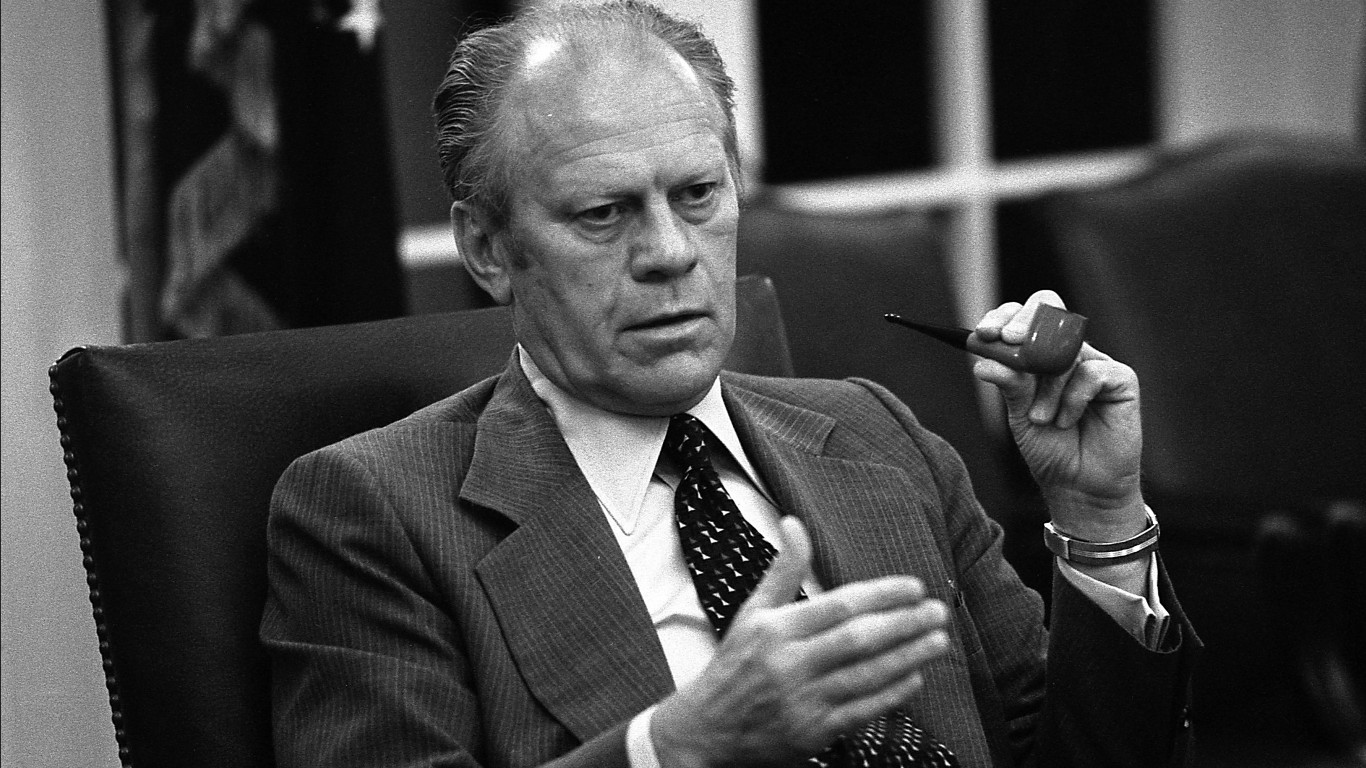
Gerald R. Ford
> Years served: 1974 – 1977
> Relationship with Congress score: 54.9 (19th highest)
> Crisis leadership score: 53.6 (20th lowest)
> Party affiliation: Republican
President Gerald R. Ford, a Republican, did not get along with the Democrat controlled Congress. He vetoed more bills than he signed into laws. Ford became president following Nixon’s resignation, and his reputation suffered after he pardoned Nixon “for all offenses against the United States.” He even testified before Congress, the first time a president has done so, explaining his decision. His party disliked him because he appointed a liberal as vice president.
[in-text-ad-2]

William J. Clinton
> Years served: 1993-2001
> Relationship with Congress score: 55.1 (17th highest)
> Crisis leadership score: 61.5 (18th highest)
> Party affiliation: Democrat
The time of Bill Clinton’s presidency was the most peaceful and economically prosperous in U.S. history — he even achieved a budget surplus. But Clinton could not get his health care reform passed through Congress. A disagreement between Clinton and Speaker of the House Newt Gingrich over cuts to Medicare and other programs led to several government shutdowns. Congress impeached Clinton for lying to a grand jury about his affair with Monica Lewinsky and obstruction of justice. He was acquitted.
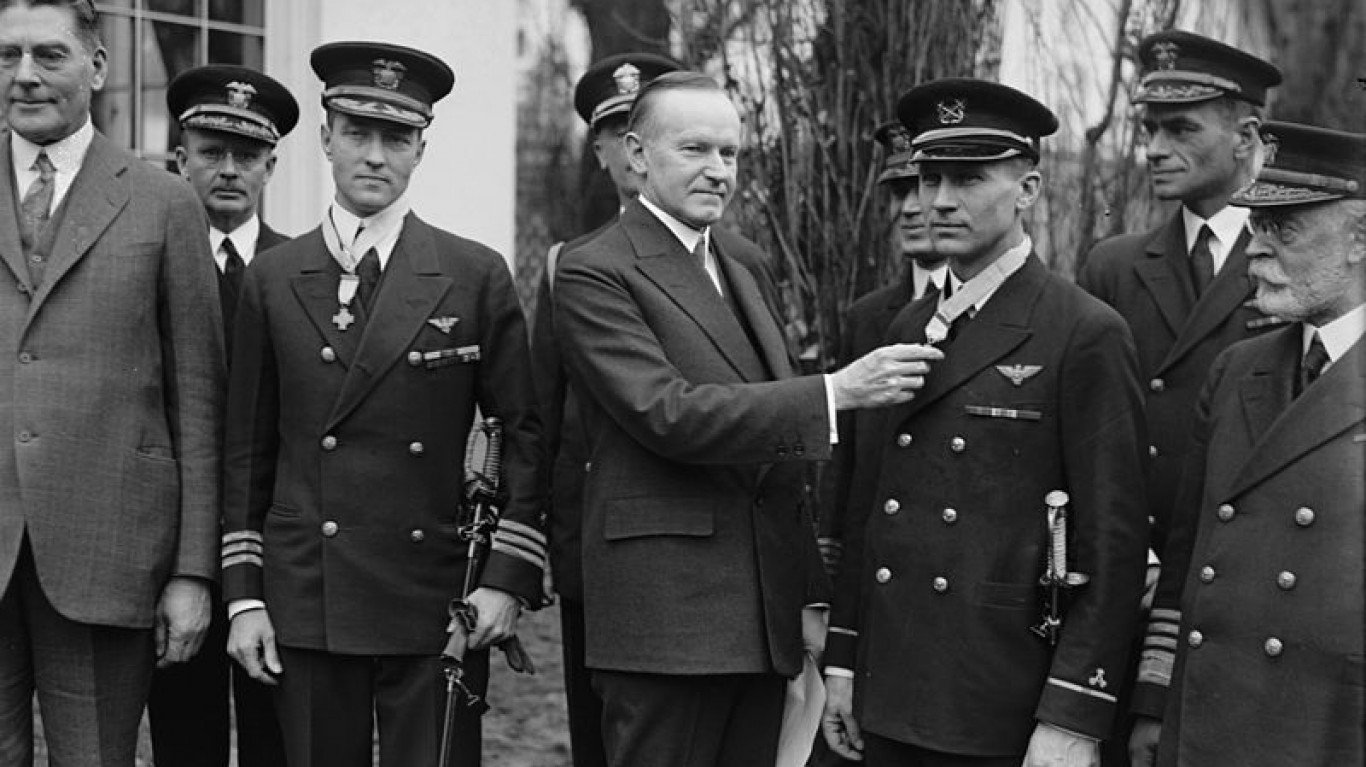
Calvin Coolidge
> Years served: 1923-1929
> Relationship with Congress score: 55.1 (17th highest)
> Crisis leadership score: 46.8 (15th lowest)
> Party affiliation: Republican
President Calvin Coolidge had a reputation for being tough and honest, a reputation that helped restore the public’s faith in the government again after the scandals of the Harding administration. He remained popular throughout his presidency as the United States was enjoying a booming economy in what became known as “Coolidge prosperity.” He supported small government, high tariffs on imported goods, and tax cuts. He vetoed a bill that would have financially helped veterans, but his veto was overridden by Congress.
[in-text-ad]
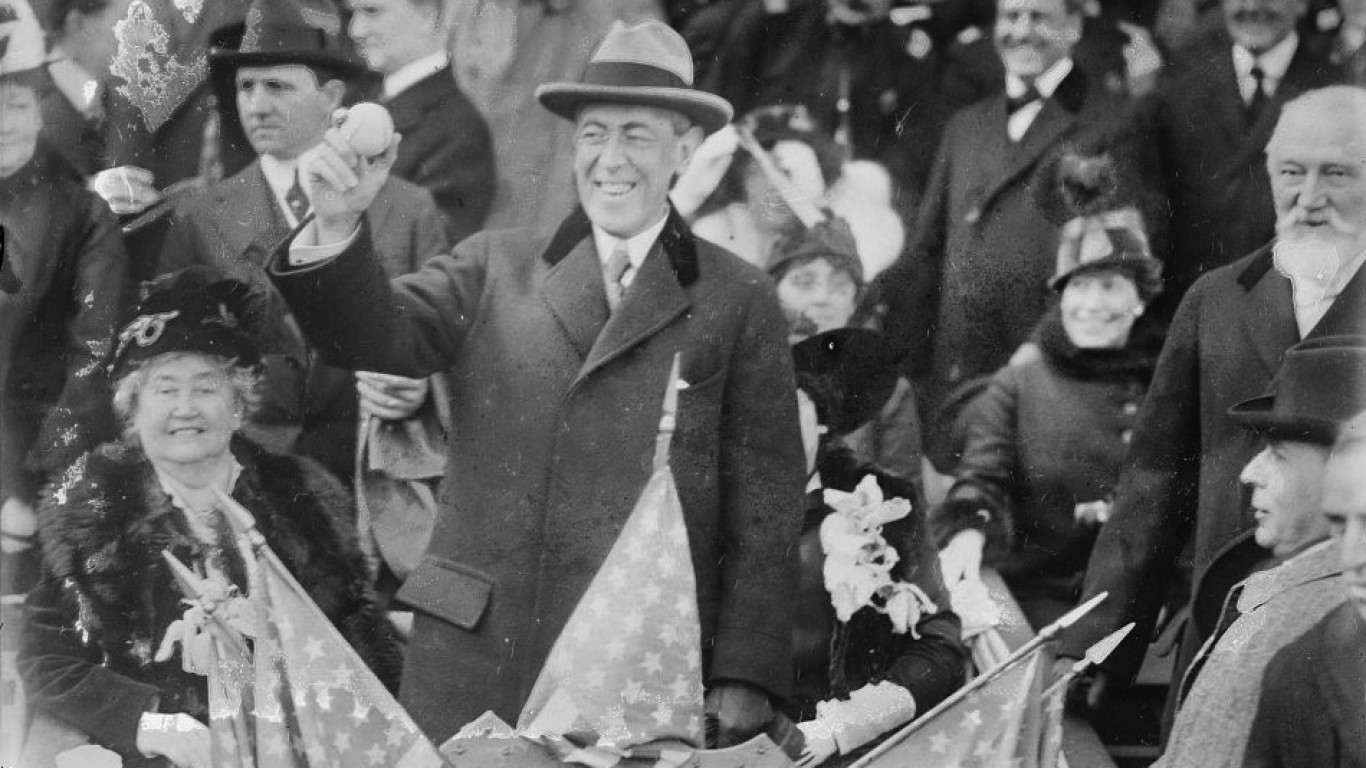
Woodrow Wilson
> Years served: 1913-1921
> Relationship with Congress score: 55.2 (16th highest)
> Crisis leadership score: 73.4 (11th highest)
> Party affiliation: Democrat
In order to get along better with Democrats in Congress, President Woodrow Wilson appointed William Jennings Bryan, who run for president and lost three times, as secretary of state. Congress and Wilson had a solid relationship, except when it came to joining the League of Nations, which he supported. During Wilson’s presidency at least four major laws were passed: lowering tariffs, banning child labor, creating the central banking system, and establishing Congress’s right to impose federal income tax.

George H.W. Bush
> Years served: 1989-1993
> Relationship with Congress score: 56.3 (15th highest)
> Crisis leadership score: 72.7 (12th highest)
> Party affiliation: Republican
President George H.W. Bush used his veto power regularly. He vetoed 44 bills with Congress managing to override just one. He threatened to veto even more bills if they were not changed to better suit his views. The federal budget’s large debt left Bush unable to carry out some of his major domestic programs. He promised not to raise taxes, but did eventually as part of a compromise which Democrats, who controlled Congress. This ended up costing him reelection.
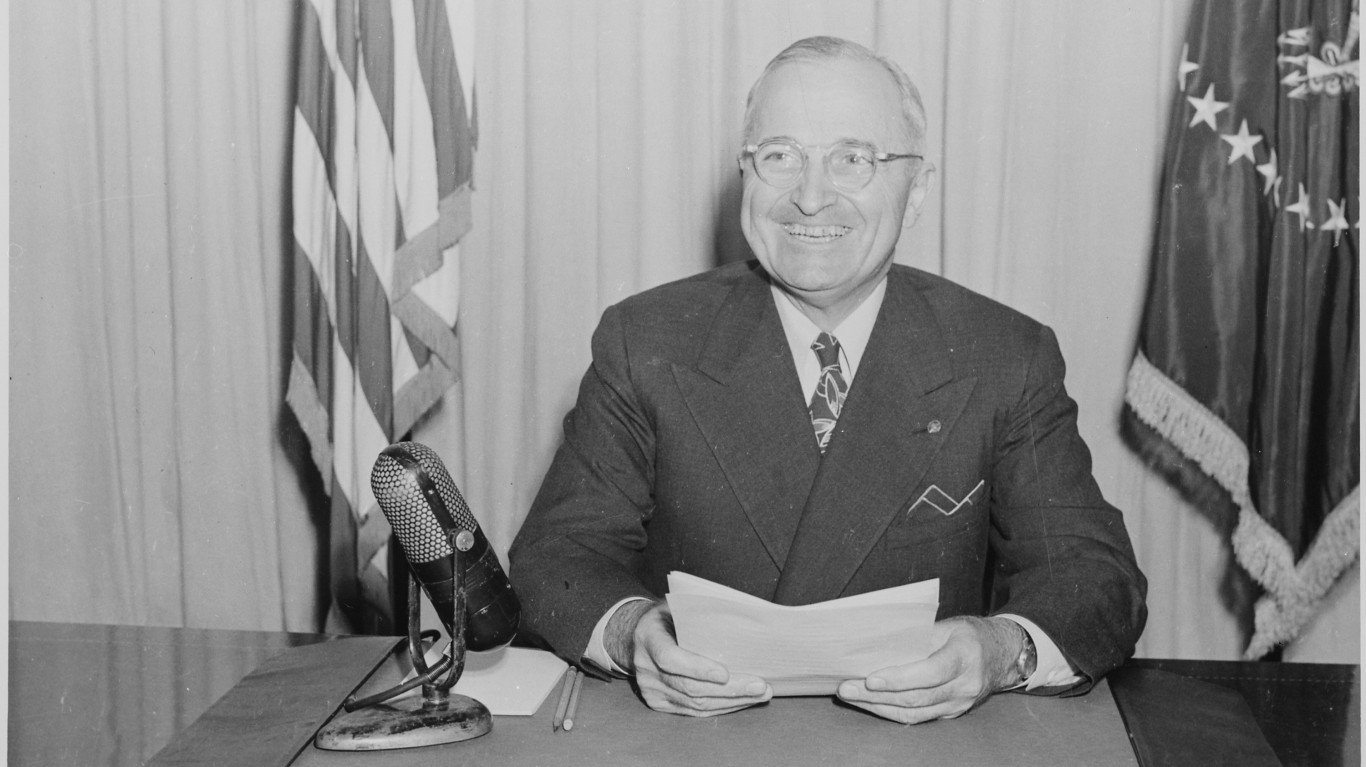
Harry S. Truman
> Years served: 1945 – 1953
> Relationship with Congress score: 57.9 (14th highest)
> Crisis leadership score: 85.1 (4th highest)
> Party affiliation: Democrat
President Harry S. Truman assumed the office of the president after being the vice president under Franklin D. Roosevelt for just five weeks. In charge of handling the country after World War II had ended, Truman had a long political and economic agenda. He called for new public works programs, guarantees for full employment, higher minimum wage, an expanded Social Security System, and a national health insurance system. While he the “full employment” bill passed through Congress, Republicans and conservative southern Democrats in Congress blocked other plans he had.
[in-text-ad-2]
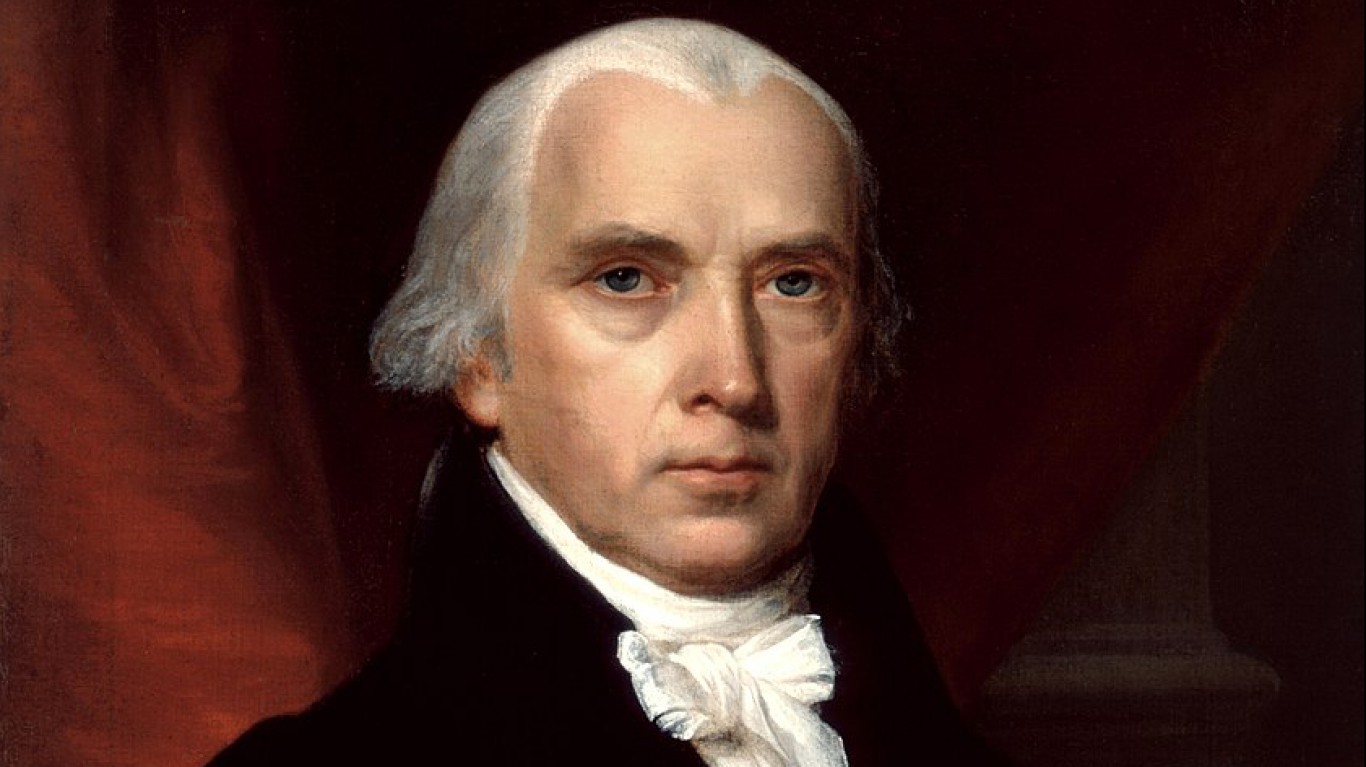
James Madison
> Years served: 1809-1817
> Relationship with Congress score: 60.1 (13th highest)
> Crisis leadership score: 60.4 (19th highest)
> Party affiliation: Democratic-Republican
President James Madison, known as the Father of the Constitution, was president when Great Britain and France were at war. He sought peace between the two, but his efforts were mostly secret. Congressional federalists, and some states, called the conflict “Mr. Madison’s War.” Congress had rejected his pleas to improve and fund a new navy and army, resulting in the country not having a proper army and not being ready for another war, an error that was later fixed.

John F. Kennedy
> Years served: 1961-1963
> Relationship with Congress score: 61.3 (12th highest)
> Crisis leadership score: 79.4 (7th highest)
> Party affiliation: Democrat
President John F. Kennedy often found that he had to compromise to achieve his legislative programs because Congress distrusted him. He was viewed, even by some from his own party, as suspicious because of his northeast establishment background. He could not get his two priorities — cutting income tax and a civil rights bill — passed.
[in-text-ad]
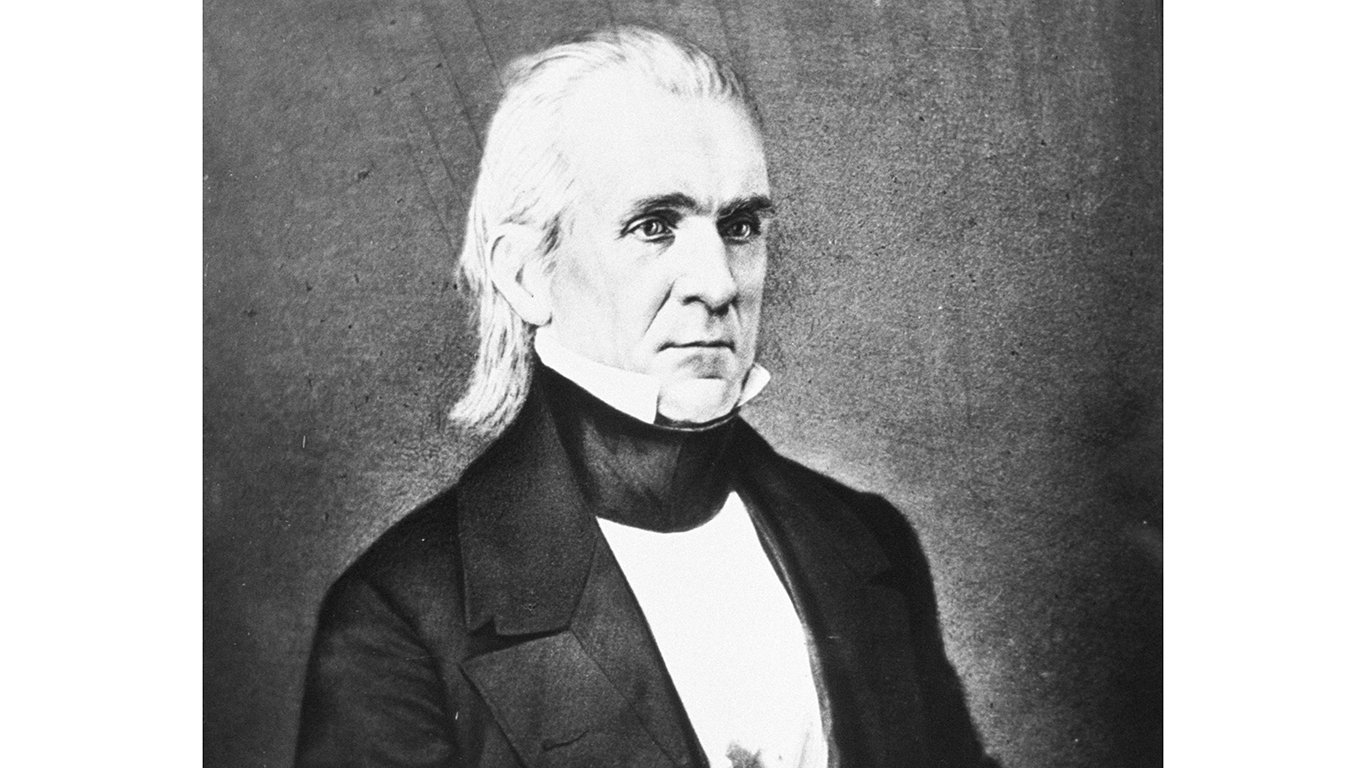
James K. Polk
> Years served: 1845 – 1849
> Relationship with Congress score: 64.6 (11th highest)
> Crisis leadership score: 73.8 (9th highest)
> Party affiliation: Democrat
President James K. Polk and Congress did not always agree, but they managed to find common ground without big standoffs. When his whole party was united behind a policy he opposed, Polk sided with Congress. He vetoed a total of three bills, only one of which was overridden. Polk was regarded as a skillful and ambitious president who achieved all of his major goals, including lower tariffs, an independent treasury, and expansion of the United States. By the end of his presidency, the country spanned for the first time from the Atlantic to the Pacific Ocean.
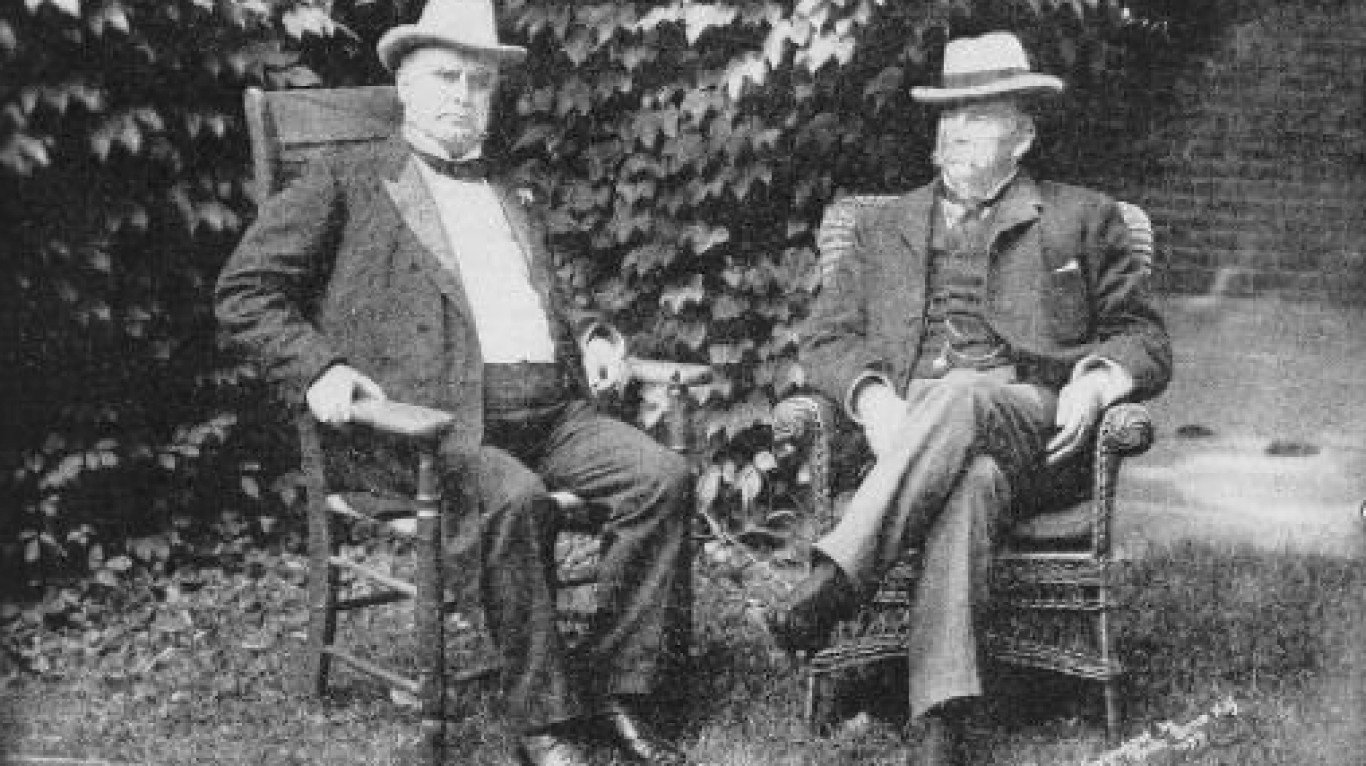
William McKinley
> Years served: 1897 – 1901
> Relationship with Congress score: 65.6 (10th highest)
> Crisis leadership score: 64.8 (16th highest)
> Party affiliation: Republican
President William McKinley called for a special session of Congress right after his inauguration to raise custom duties because he thought this would lower other taxes as well as unemployment. He signed the Dingley Tariff Act, which imposed the highest protective tariff to that point. McKinley’s presidency was largely marked by the Spanish-American War, which he was praised for handling. He asked Congress to intervene in the ongoing conflict in Cuba after an American battleship was sunk (by what later turned out to be an internal explosion), and Congress issued a formal declaration of war a few months later. The United States defeated Spain in Cuba, seized Manila in the Philippines, and annexed Puerto Rico.

James Monroe
> Years served: 1817 – 1825
> Relationship with Congress score: 66.2 (9th highest)
> Crisis leadership score: 66.1 (14th highest)
> Party affiliation: Democratic-Republican
James Monroe was the last president from the Founding Fathers. His time in office has been called the “Era of Good Feelings.” But then an economic crisis resulting from declining imports and exports and plummeting agricultural prices contributed in what is known as the Panic of 1819. Banks declared bankruptcy, unemployment was high, and foreclosures increased. Monroe’s detractors in Congress criticized him for doing little to solve the economic problems. When Missouri applied for statehood, the House wanted it to enter the Union as a free state, but the Senate disagreed. Monroe said he would veto a bill that places special restrictions on the admission of one state and not others. Behind the scenes he negotiated with all sides to help reach the Missouri Compromise in which Missouri was admitted as a slave state in return for the South agreeing to outlaw slavery in western territories.
[in-text-ad-2]

Ronald Reagan
> Years served: 1981 – 1989
> Relationship with Congress score: 68.9 (8th highest)
> Crisis leadership score: 74.1 (8th highest)
> Party affiliation: Republican
Ronald Reagan, the oldest man elected president of the United States, faced the twin challenges of a moribund economy and a possible war with the Soviet Union. Just as he assumed the presidency, Reagan was shot. He quickly recovered, and riding the goodwill from the Democratic Congress following the assassination attempt, he was able to get legislation passed to cut taxes aimed at stimulating the economy as well as strengthen national defense. After he was re-elected, Reagan and Congress overhauled the tax code in 1986.
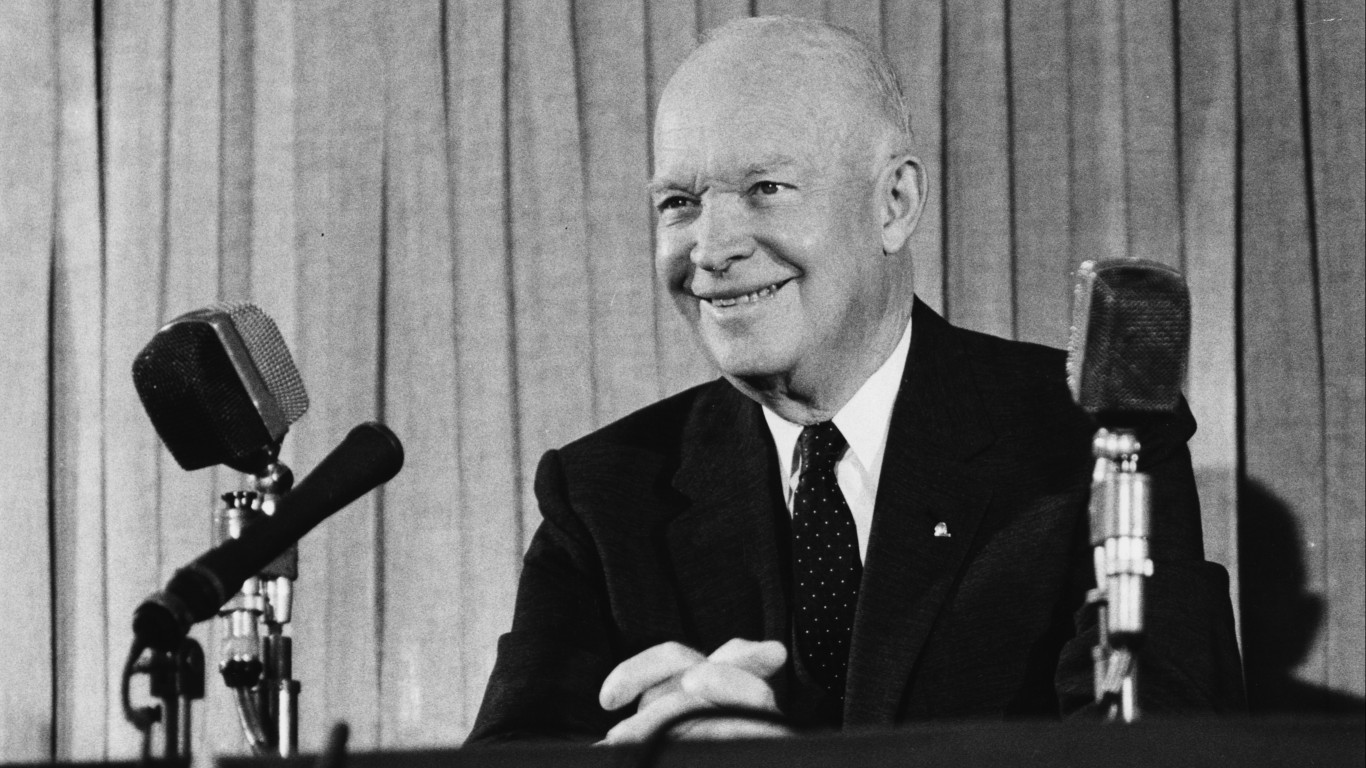
Dwight D. Eisenhower
> Years served: 1953-1961
> Relationship with Congress score: 72.0 (6th highest)
> Crisis leadership score: 82.3 (6th highest)
> Party affiliation: Republican
Dwight Eisenhower was famous for his ability to delegate responsibility to his subordinates as the Supreme Allied Commander during World War II. The same was true when he was president. Eisenhower made it a point to upgrade the Office of Congressional Relations with people such as Gerald Morgan, an attorney who helped draft the Taft-Hartley Act that restricted the power of organized labor. Eisenhower believed that the governmental departments should do the bulk of the work in dealing with Congress. He also had a strong respect for the separation of powers. His ability to work with Congress led to the passage of the Federal Highway Acts of 1954,1956, and 1958 that created the interstate highway system.
[in-text-ad]

Theodore Roosevelt
> Years served: 1901-1909
> Relationship with Congress score: 72.0 (6th highest)
> Crisis leadership score: 83.5 (5th highest)
> Party affiliation: Republican
After the Civil War, Congress, and not the president, became the dominant branch in American government. That changed with President Theodore Roosevelt, whose forceful personality helped turn the United States into a global power. The 26th president reshaped the executive branch in his energetic image, challenging notions of limited executive leadership. The progressive Republican got Congress behind initiatives such as taking on business monopolies, using government to provide equal economic opportunity, and supporting conservation.
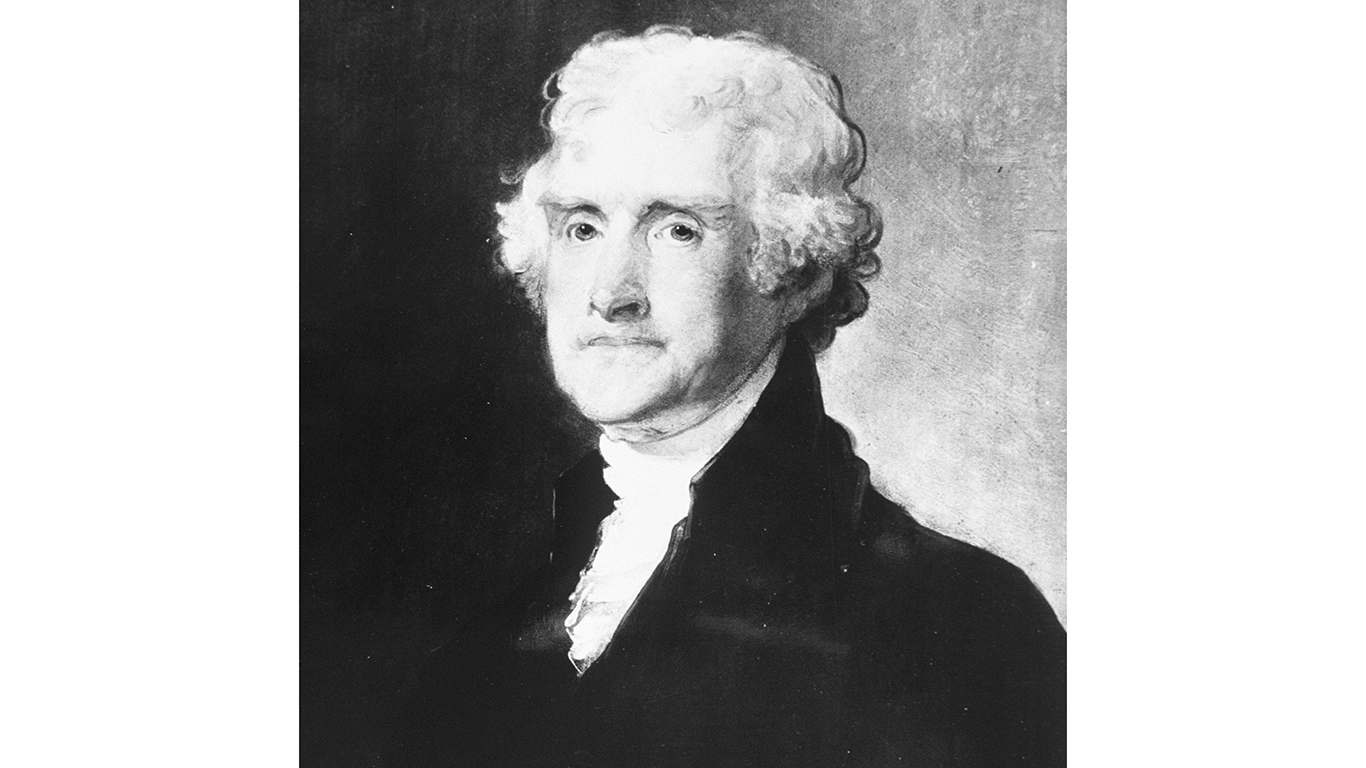
Thomas Jefferson
> Years served: 1801-1809
> Relationship with Congress score: 74.0 (5th highest)
> Crisis leadership score: 72.4 (13th highest)
> Party affiliation: Democratic-Republican
President Thomas Jefferson tried to reduce the profile of the presidency, and his annual addresses to Congress were delivered in writing. Jefferson also sought to reduce the size of government, slashing the size of the navy and army and trimming some government posts. He flouted his own constitutional principles by going ahead with the Louisiana Purchase in 1803 without Congress’s approval because, as he reasoned, the opportunity to expand the country so quickly was too good to pass up. Jefferson’s decision is considered one of the boldest actions taken by a president without congressional approval.

Abraham Lincoln
> Years served: 1861-1865
> Relationship with Congress score: 79.5 (4th highest)
> Crisis leadership score: 97.8 (the highest)
> Party affiliation: Republican
President Abraham Lincoln’s relations with Congress were complex. His administration was consumed by the Civil War, and many in Congress had their own ideas about how to prosecute the conflict. Like Lincoln, many in Congress were focused on fighting the war to preserve the Union and were wary of alienating border states over the issue of slavery — even though they viewed slavery as wrong. Lincoln proved to be a master at handling the competing factions, particularly when it came to congressmen imposing their opinions on who should lead the Union Army.
[in-text-ad-2]
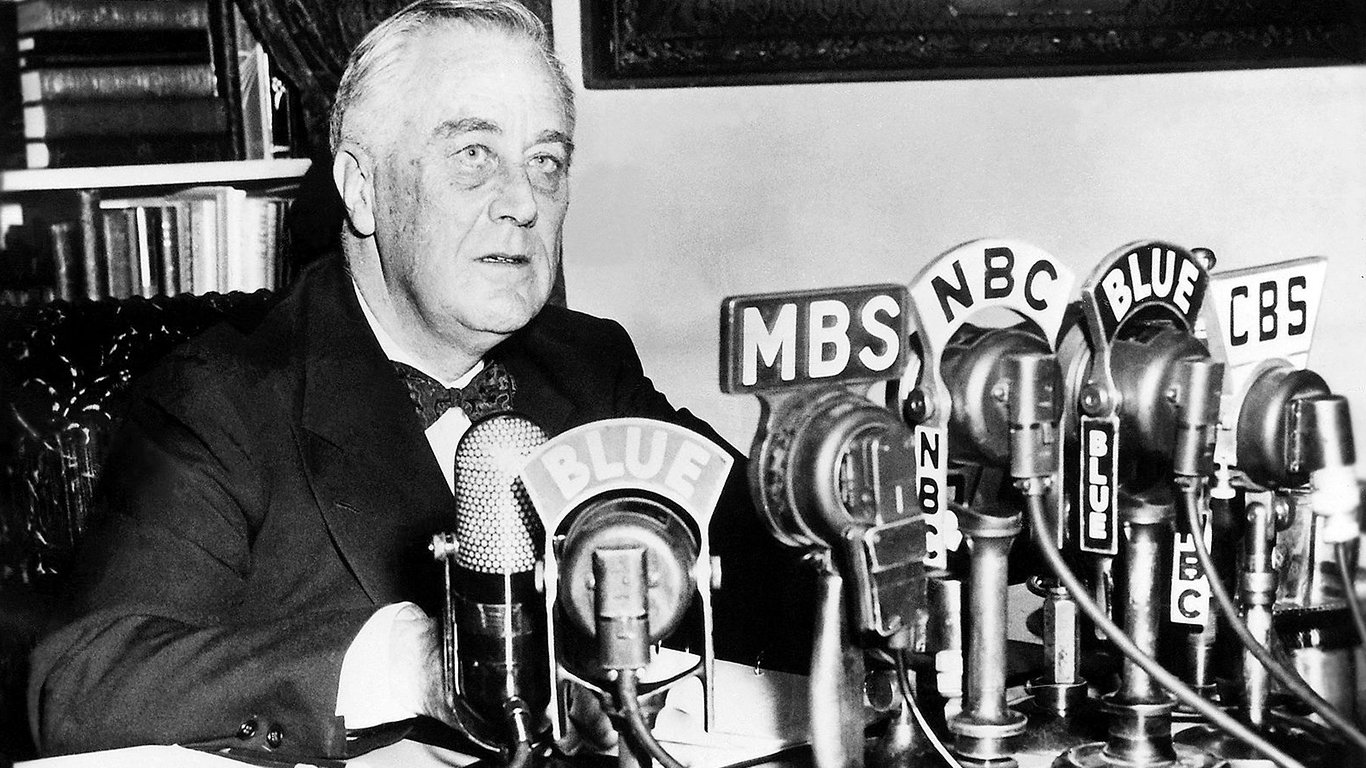
Franklin D. Roosevelt
> Years served: 1933-1945
> Relationship with Congress score: 80.1 (3rd highest)
> Crisis leadership score: 94.1 (2nd highest)
> Party affiliation: Democrat
Once he was elected president, Franklin D. Roosevelt received virtually the full cooperation of Congress because of the Great Depression. The legislation that was passed greatly expanded the size and scope of the federal government, changes that are felt to this day. In FDR’s first hundred days, Congress passed bills to address the weakened banking system, provide short-term relief programs, jobs programs, farm relief, conservation initiatives, and electrification projects. Eventually, FDR would secure passage of the bill that would create Social Security, the nation’s first financial safety net for all Americans.
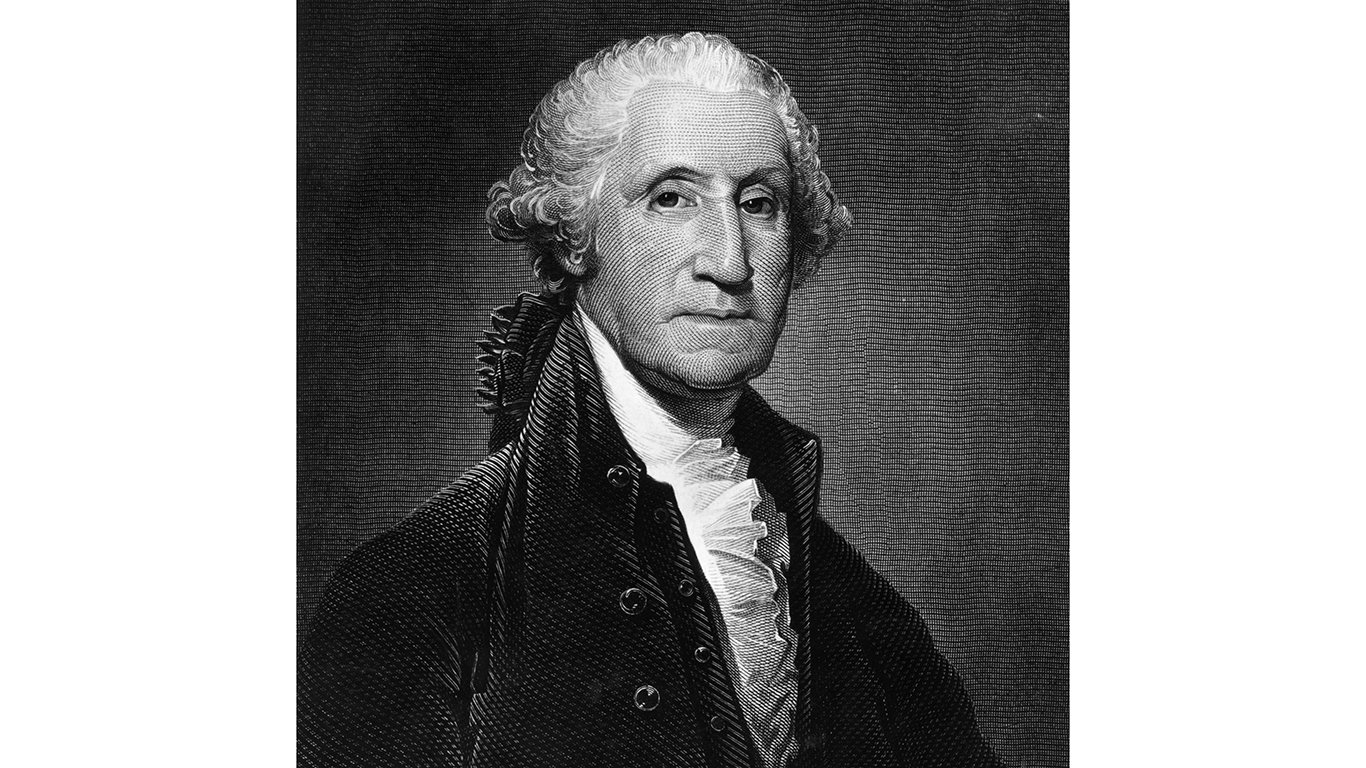
George Washington
> Years served: 1789 – 1797
> Relationship with Congress score: 82.8 (2nd highest)
> Crisis leadership score: 94.1 (2nd highest)
> Party affiliation: Federalist
As the first president, George Washington set the tone for how the chief executive would interact with the legislative branch. As commander of the Continental Army, Washington had worked with the Continental Congress, and sometimes they fought bitterly. Once he became president, it was Washington who helped enshrine the idea of civilian control over the military. He used constitutional authority to call out the militia to put down the Whiskey Rebellion in 1794. Washington’s stature helped shepherd the nation through its earlier years even as it started to separate along partisan and regional lines. Washington eschewed the trappings of power and opted to wearing clothes made of modest material. It was Washington who chose the address of “Mr. President” over “Your Highness.”
[in-text-ad]
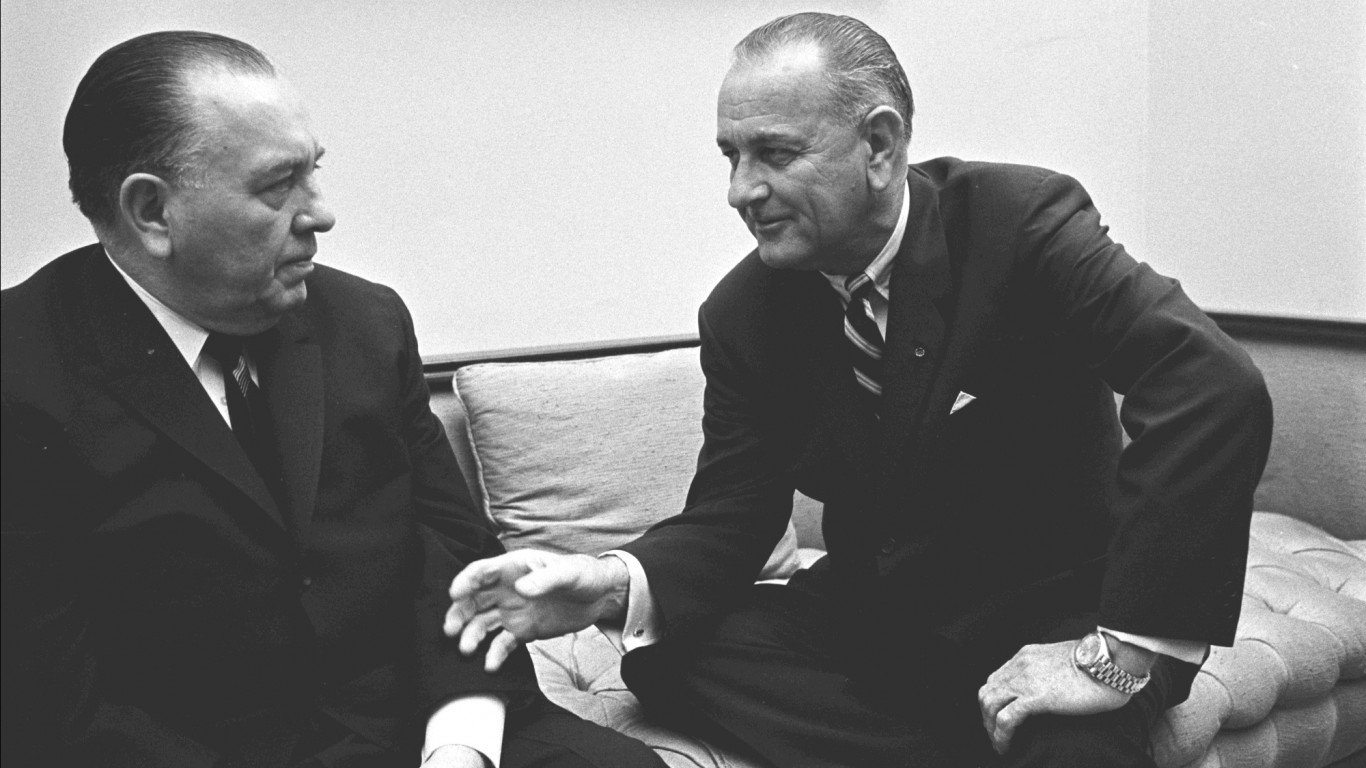
Lyndon B. Johnson
> Years served: 1963 – 1969
> Relationship with Congress score: 83.0 (the highest)
> Crisis leadership score: 59.7 (20th highest)
> Party affiliation: Democrat
Lyndon B. Johnson assumed the presidency with a legislative background without parallel. He served six terms in the House and was elected to the Senate in 1948, eventually becoming the Senate majority leader in 1954. He used his famous persuasive skills to pass a new civil rights bill and a tax cut, both of which were championed by his predecessor, Kennedy. Johnson’s agenda became known as “The Great Society” whose platform included such initiatives such as Medicare, improving education, the war on poverty, urban renewal, conservation, and extending voting rights — which Congress enacted.
Sponsored: Find a Qualified Financial Advisor
Finding a qualified financial advisor doesn’t have to be hard. SmartAsset’s free tool matches you with up to 3 fiduciary financial advisors in your area in 5 minutes. Each advisor has been vetted by SmartAsset and is held to a fiduciary standard to act in your best interests. If you’re ready to be matched with local advisors that can help you achieve your financial goals, get started now.
Thank you for reading! Have some feedback for us?
Contact the 24/7 Wall St. editorial team.
 24/7 Wall St.
24/7 Wall St. 24/7 Wall St.
24/7 Wall St. 24/7 Wall St.
24/7 Wall St. 24/7 Wall St.
24/7 Wall St.
